Kilkenny to Dublin
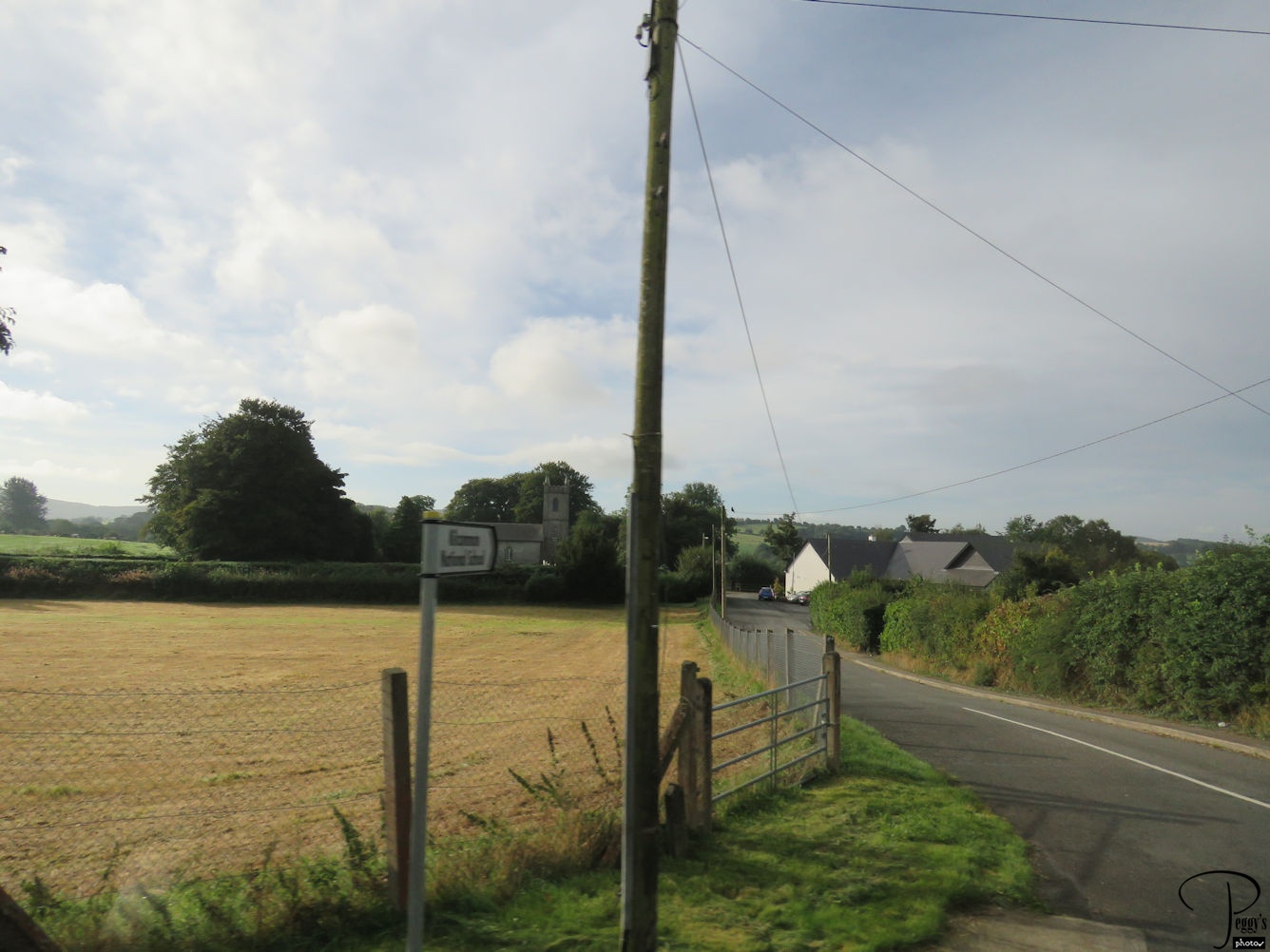
On Day 11, we left Kilkenny to travel to Dublin. There was very pretty country scenery on the way.

Kilkenny to Dublin
Kilkenny to Dublin
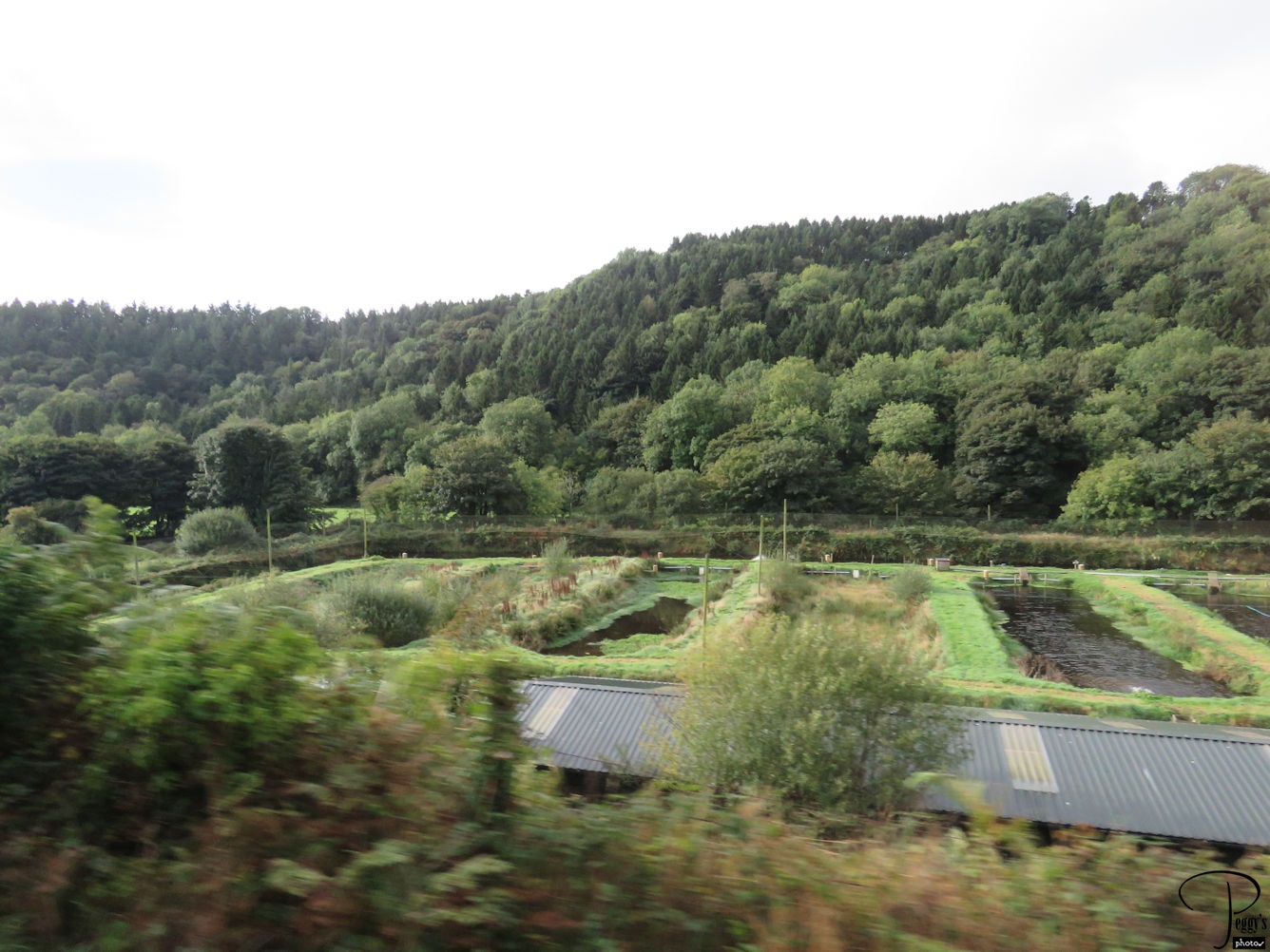
We passed fish farms.

Kilkenny to Dublin
Kilkenny to Dublin
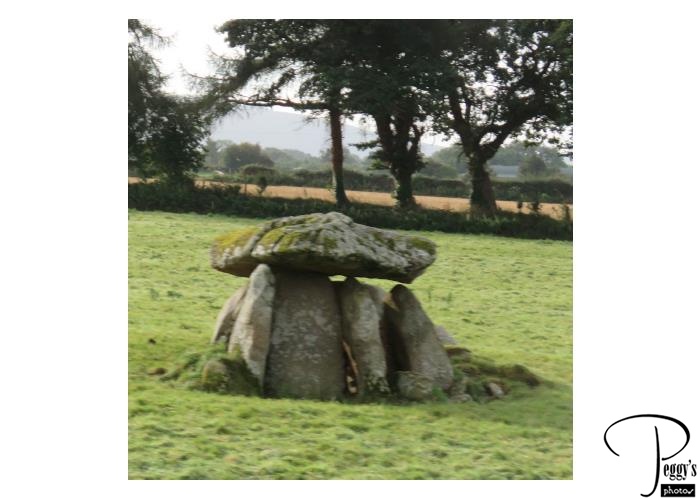
We also passed a prehistoric burial site.

Kilkenny to Dublin
Avoca Mill
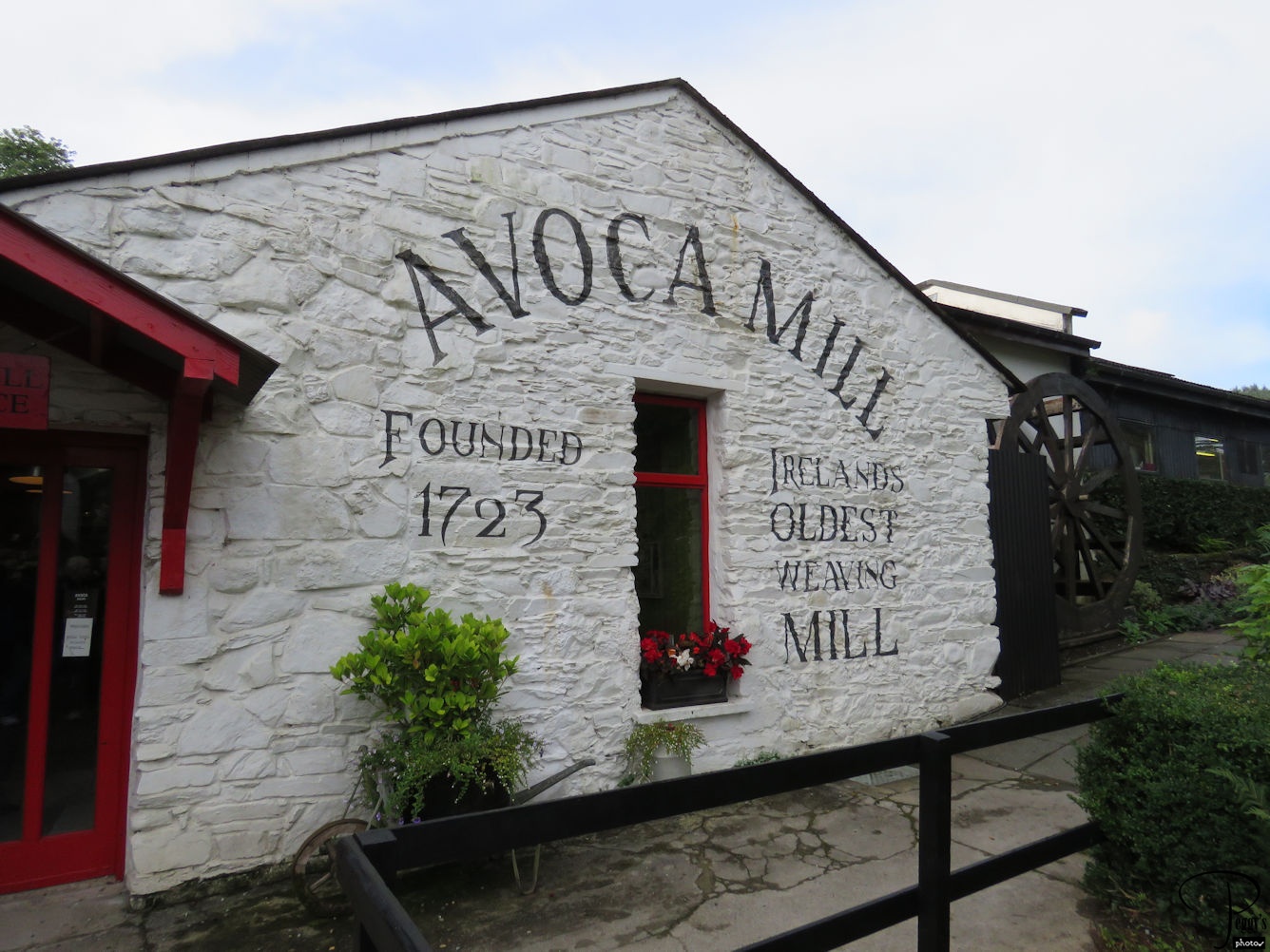
We stopped at the Avoca Mill, founded in 1723. It is Ireland’s oldest weaving mill.

Avoca Mill
Avoca Mill
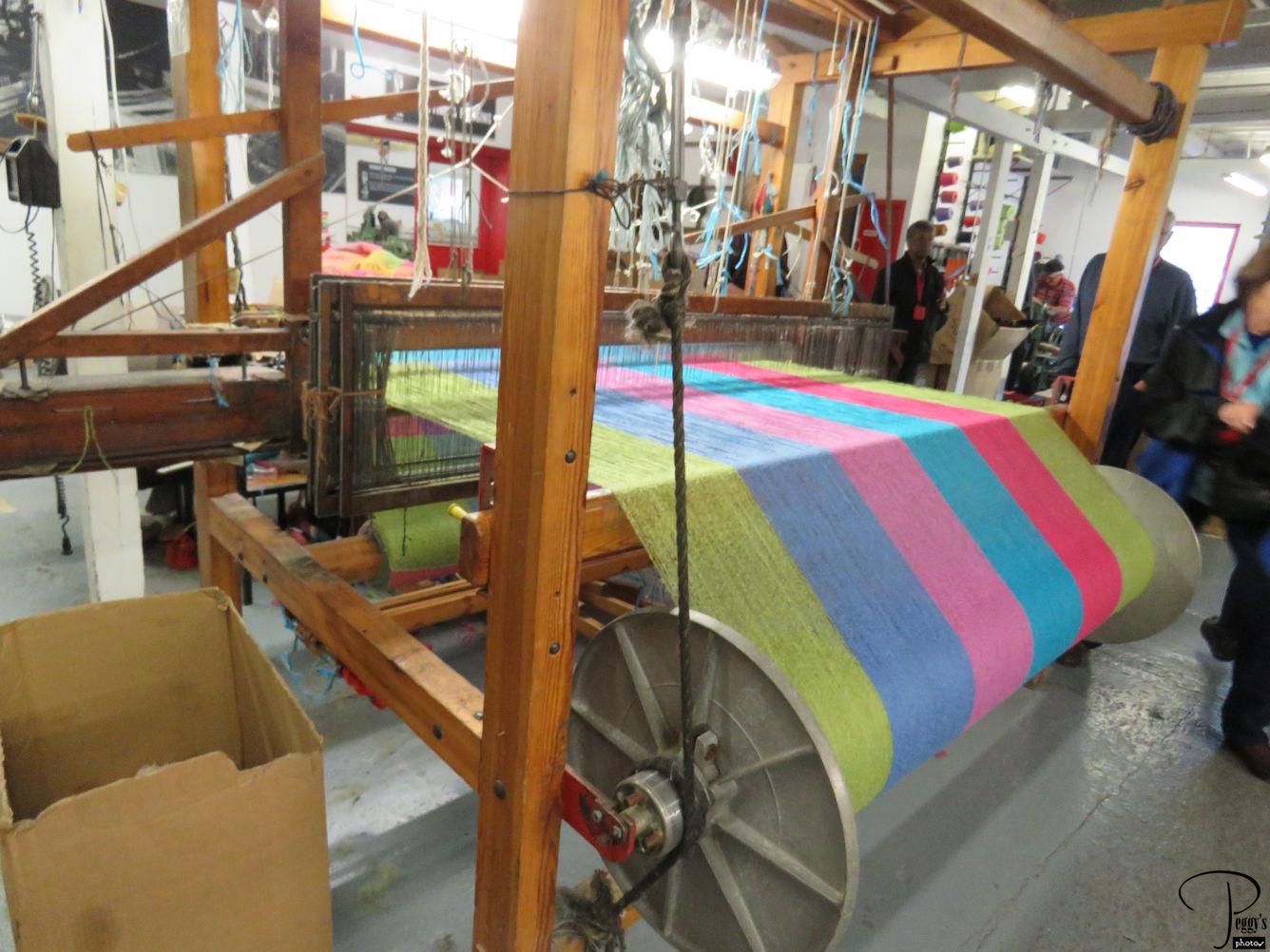
We took a tour of its factory. This loom was hand–operated.

Avoca Mill
Avoca Mill
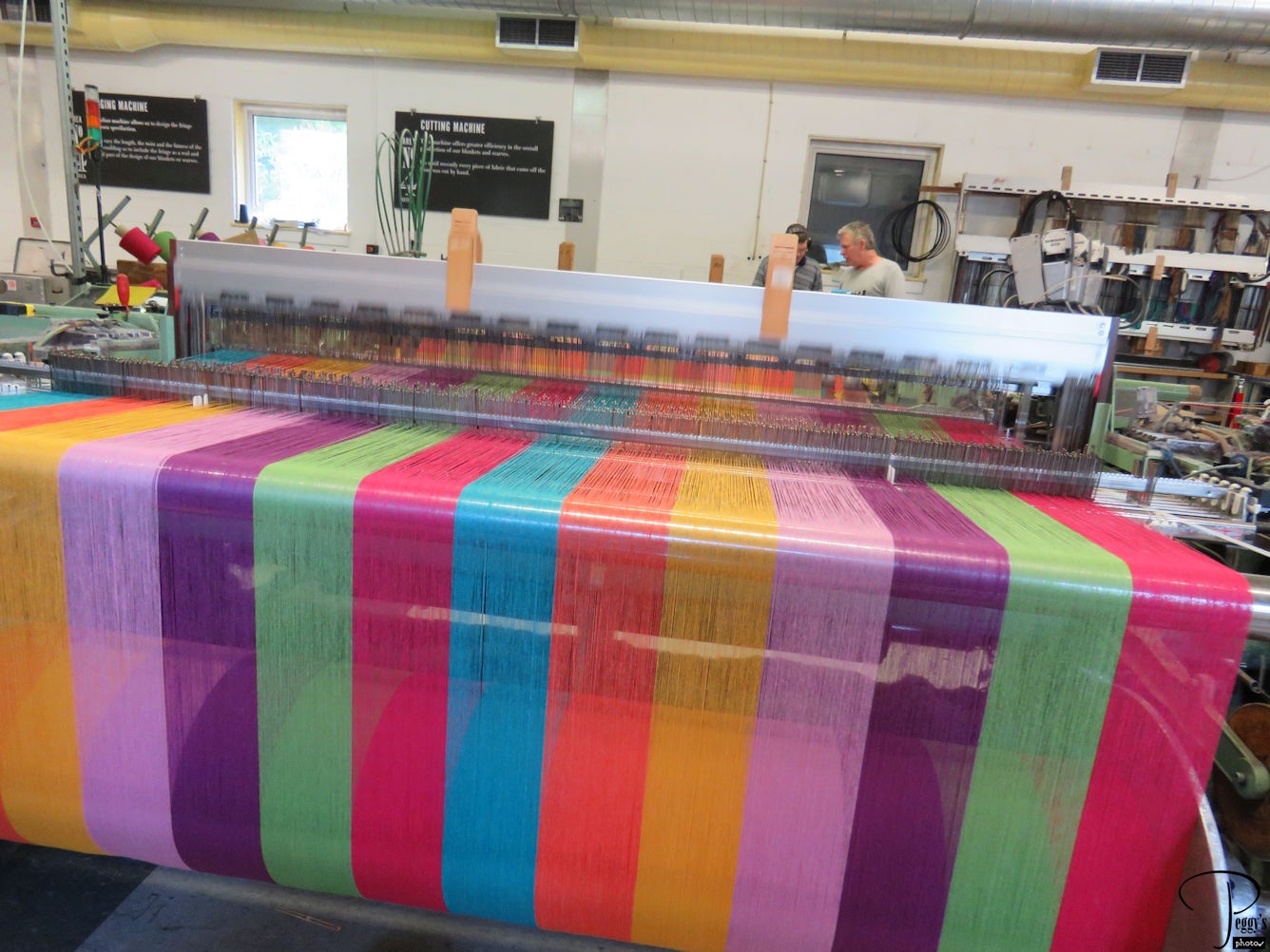
This loom was machine–operated. After visiting the Avoca Mill factory, we had time to look at and to buy woolen items from their store. We next stopped for lunch.

Avoca Mill
Trinity College
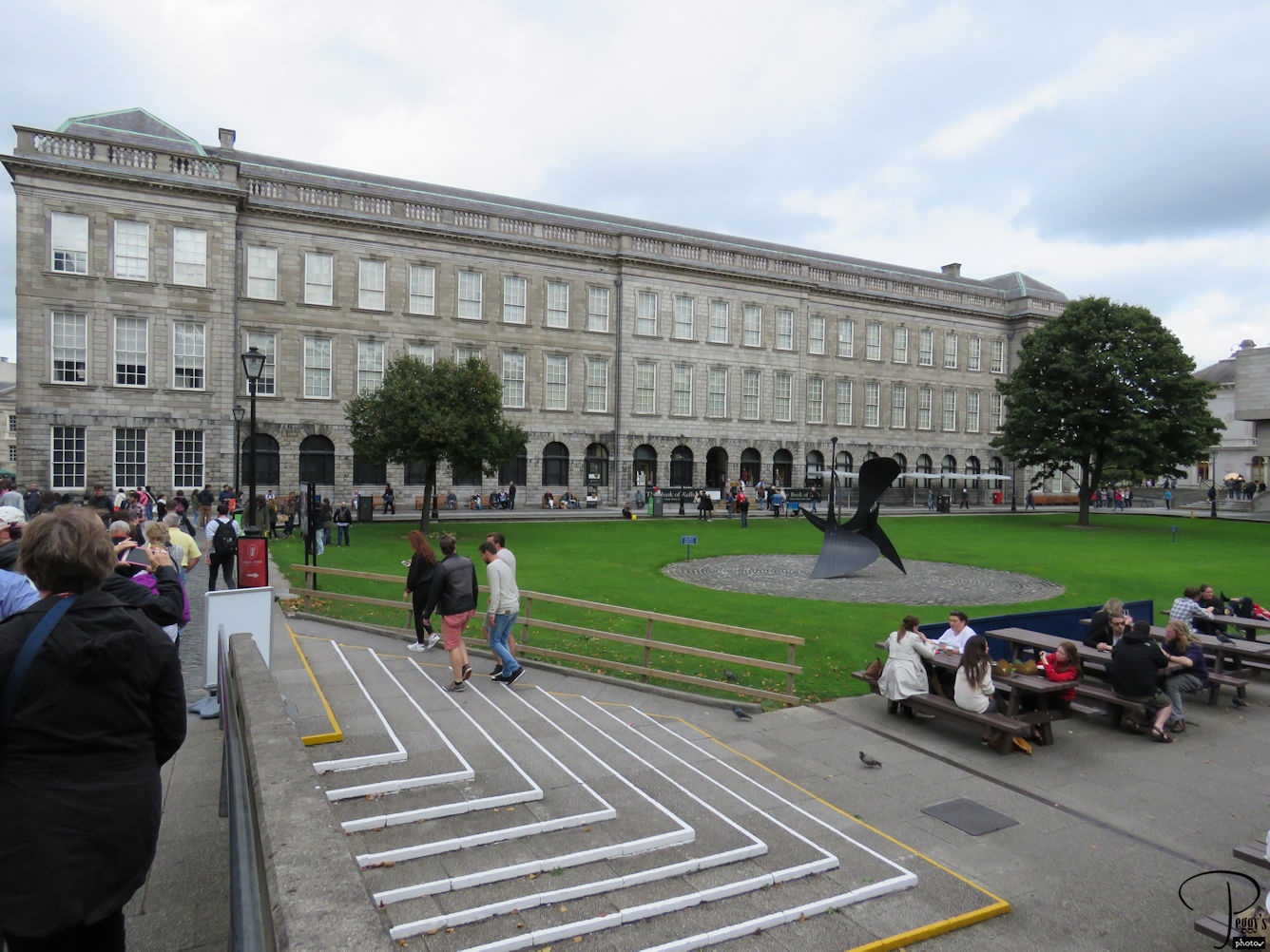
We arrived in Dublin and went to Trinity College, founded in 1592, to view the Book of Kells.

Trinity College
Book of Kells
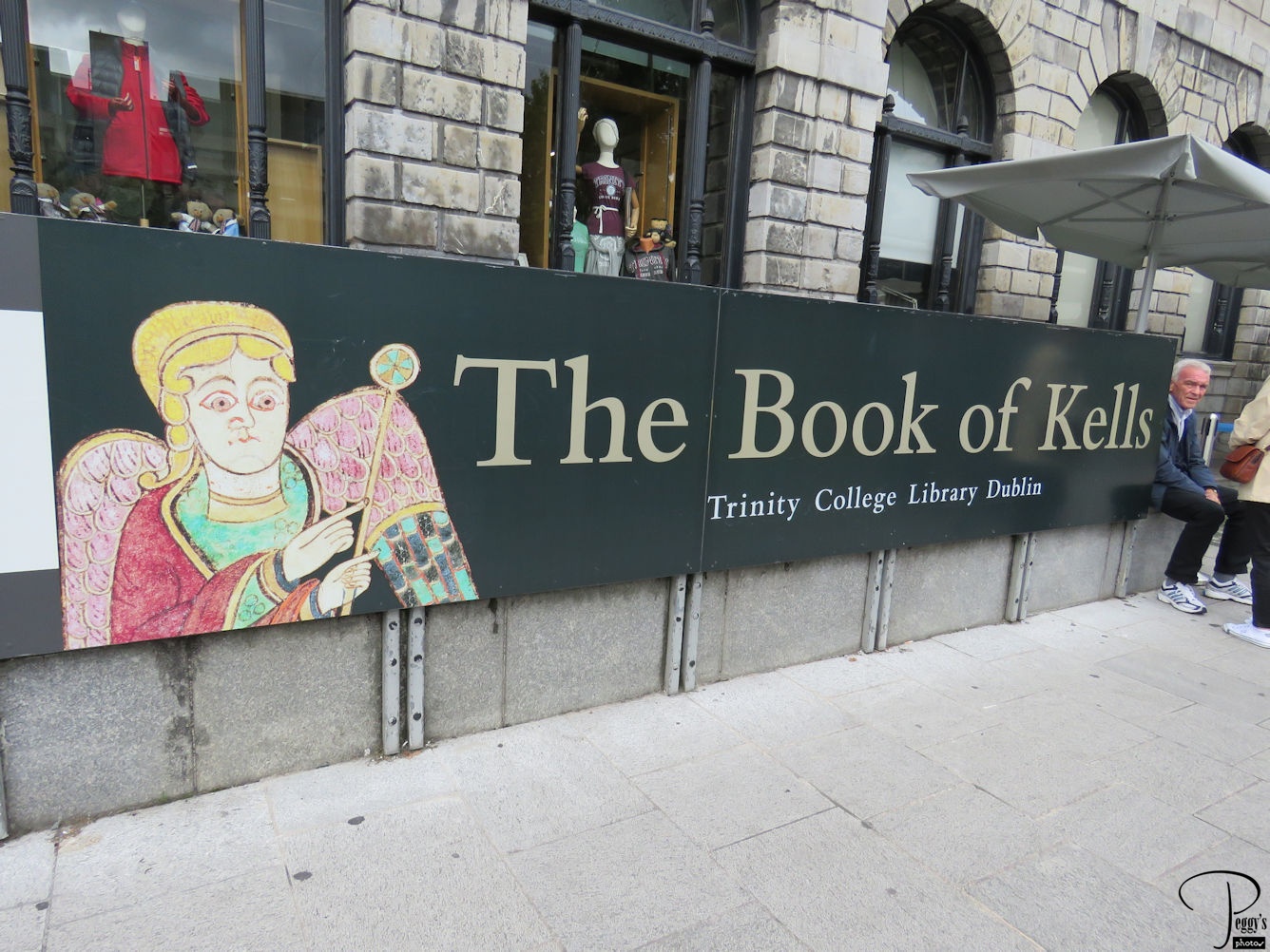
The Book of Kells is an illuminated manuscript of the four Gospels of the New Testament. It was created in a monastery in Ireland about in the year 800.

Book of Kells
Book of Kells
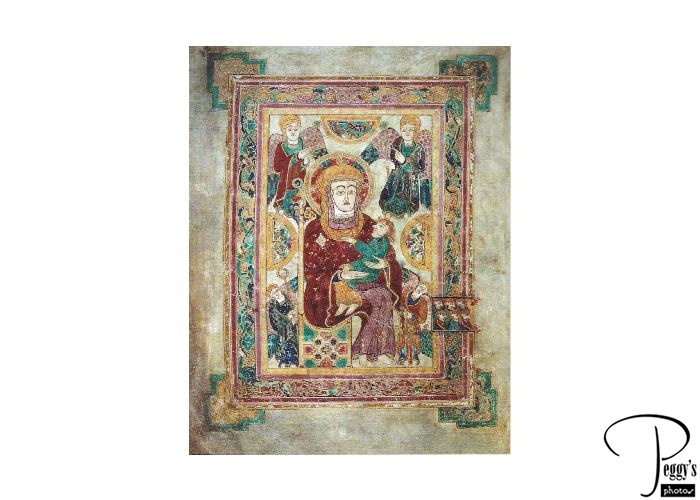

Book of Kells
Library of Trinity College
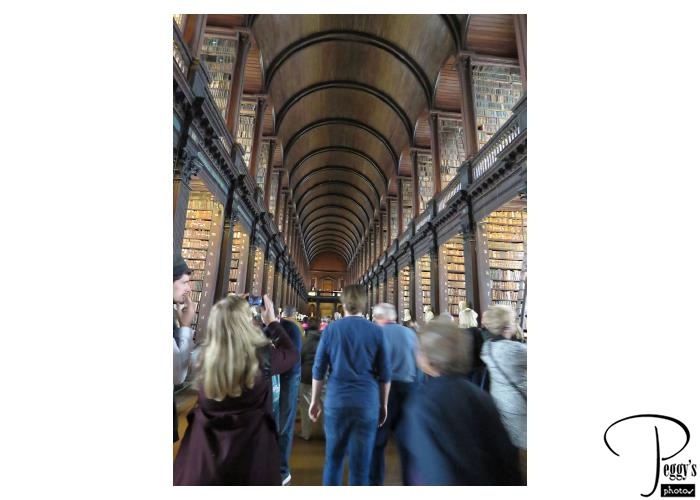
After viewing the Book of Kells, we went upstairs to the Long Room in the Library of Trinity College, the largest library in Ireland. The library contains about 6 million volumes.
I have put my photos of the Book of Kells on a slideshow that also includes our visits to the Guinness Storehouse and to the National Museum of Ireland––Archeology. Go to
http://www.peggysphotos.com/book–of–kells–guinness–storehouse–archaelogy–museum/
(Slide Shows, Western Europe, Ireland, “Book of Kells, Guinness Storehouse, Archaeology Museum.).

Library of Trinity College
Dinner
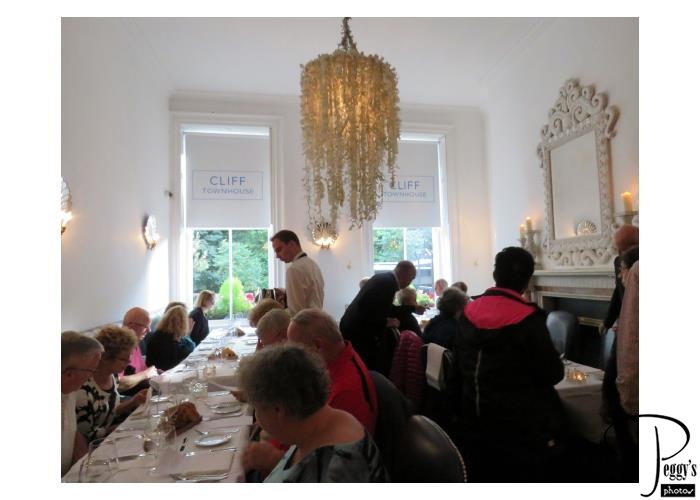
We were given an included dinner tonight at a very nice restaurant. Before going to dinner, we checked into our hotel, the Ballsbridge. A very nice hotel but far from Dublin’s city center, chosen because previous tours had complained about the noise when staying to Dublin. I think I would have preferred the noise and to be closer to many of the sites of interest. However, the hotel was on a bus route and our own tour bus would pick us up at various times during the day from a designated spot.

Dinner
Guinness Storehouse
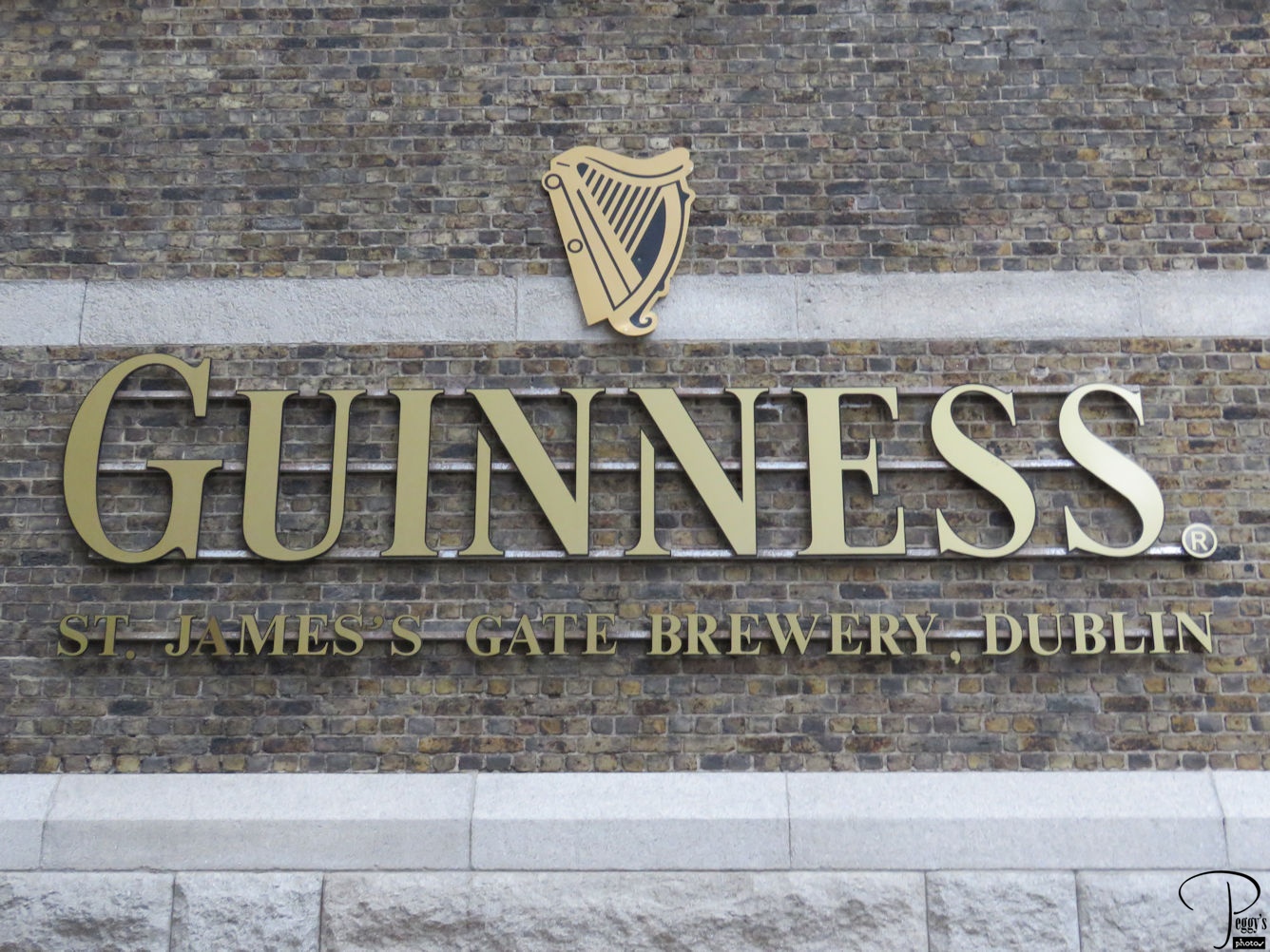
On Day 12, we first visited the Guinness Storehouse at St. James Gate. Guinness is an Irish dry stout that was created by Arthur Guinness in in 1759.

Guinness Storehouse
Guinness Advertising
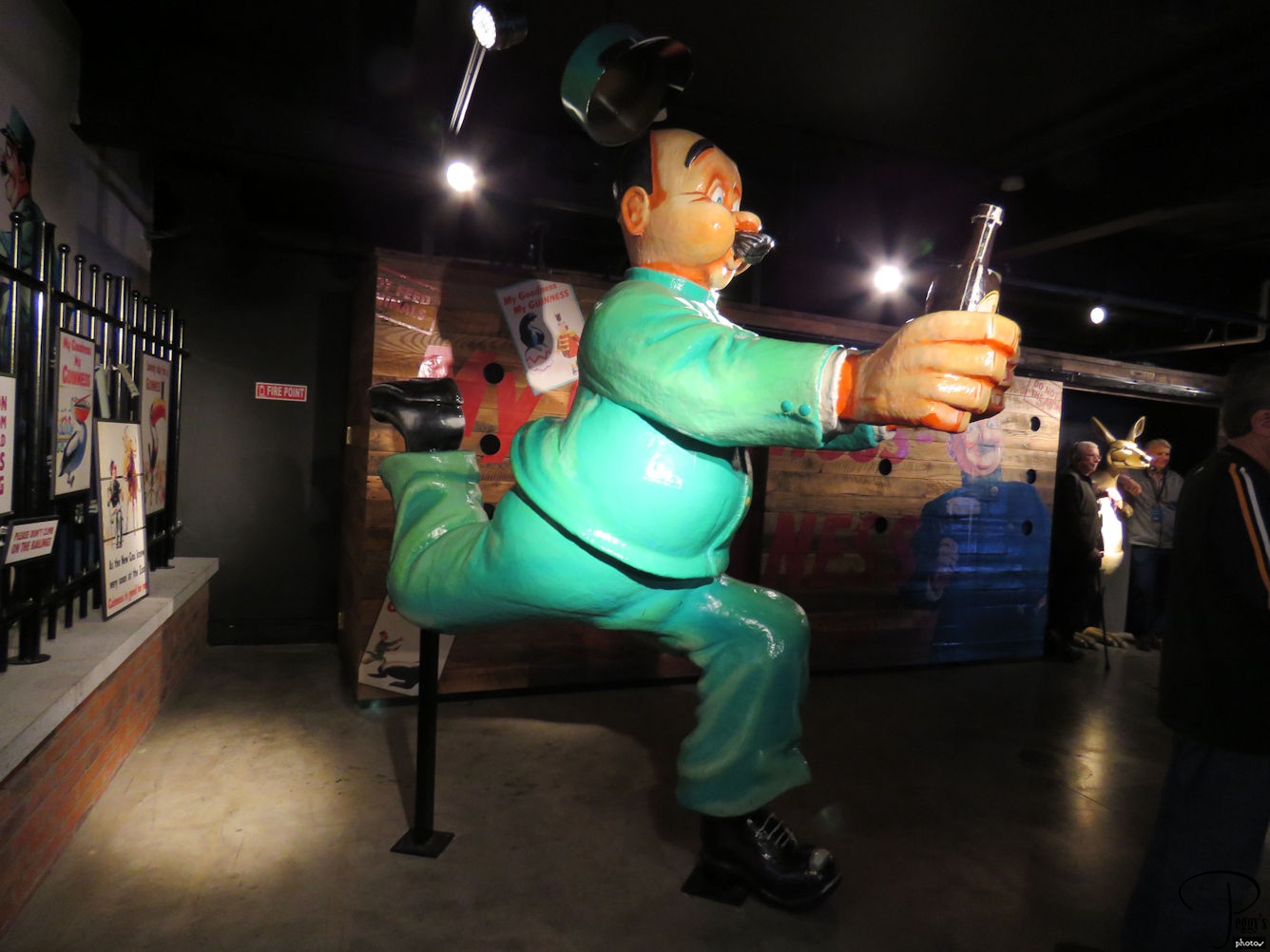
On one of the floors of the storehouse was a very interesting display of the characters and also of advertisements that Guinness uses to sell their brands. This man is used in some of their advertisements.

Guinness Advertising
Lovely Day for a Guinness
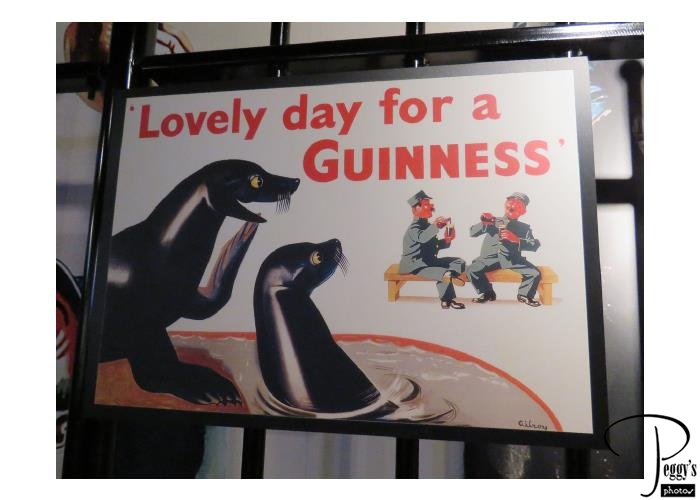
One of their advertisements.

Lovely Day for a Guinness
Guinness Tasting Room
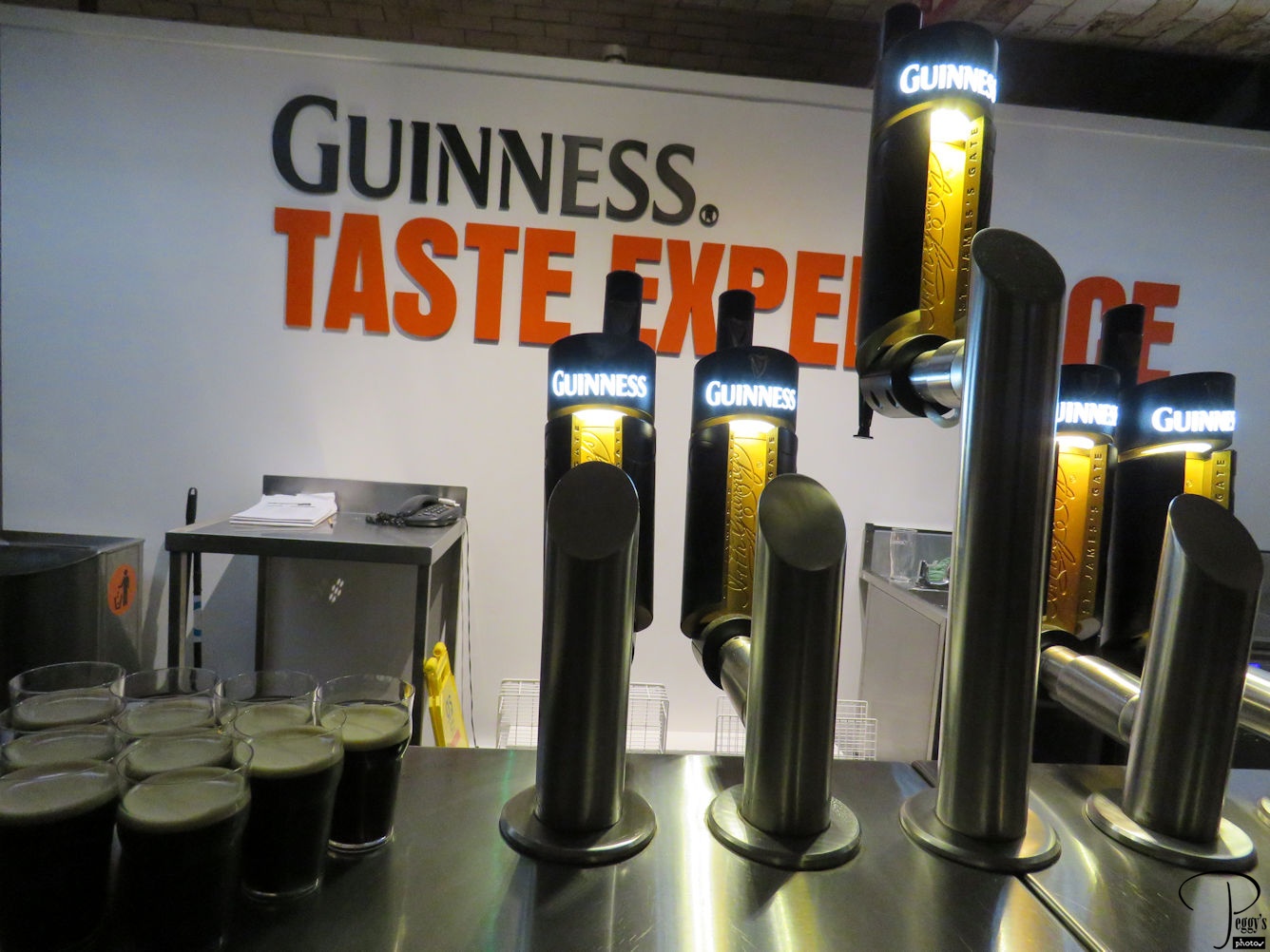
We were given vouchers for a sample of the Guinness brew in their tasting room.
My photos of the Guinness storehouse are included in the slideshow
http://www.peggysphotos.com/book–of–kells–guinness–storehouse–archaelogy–museum/
(Slide Shows, Western Europe, Ireland, “Book of Kells, Guinness Storehouse, Archaeology Museum”).

Guinness Tasting Room
National Museum of Ireland–Archaeology
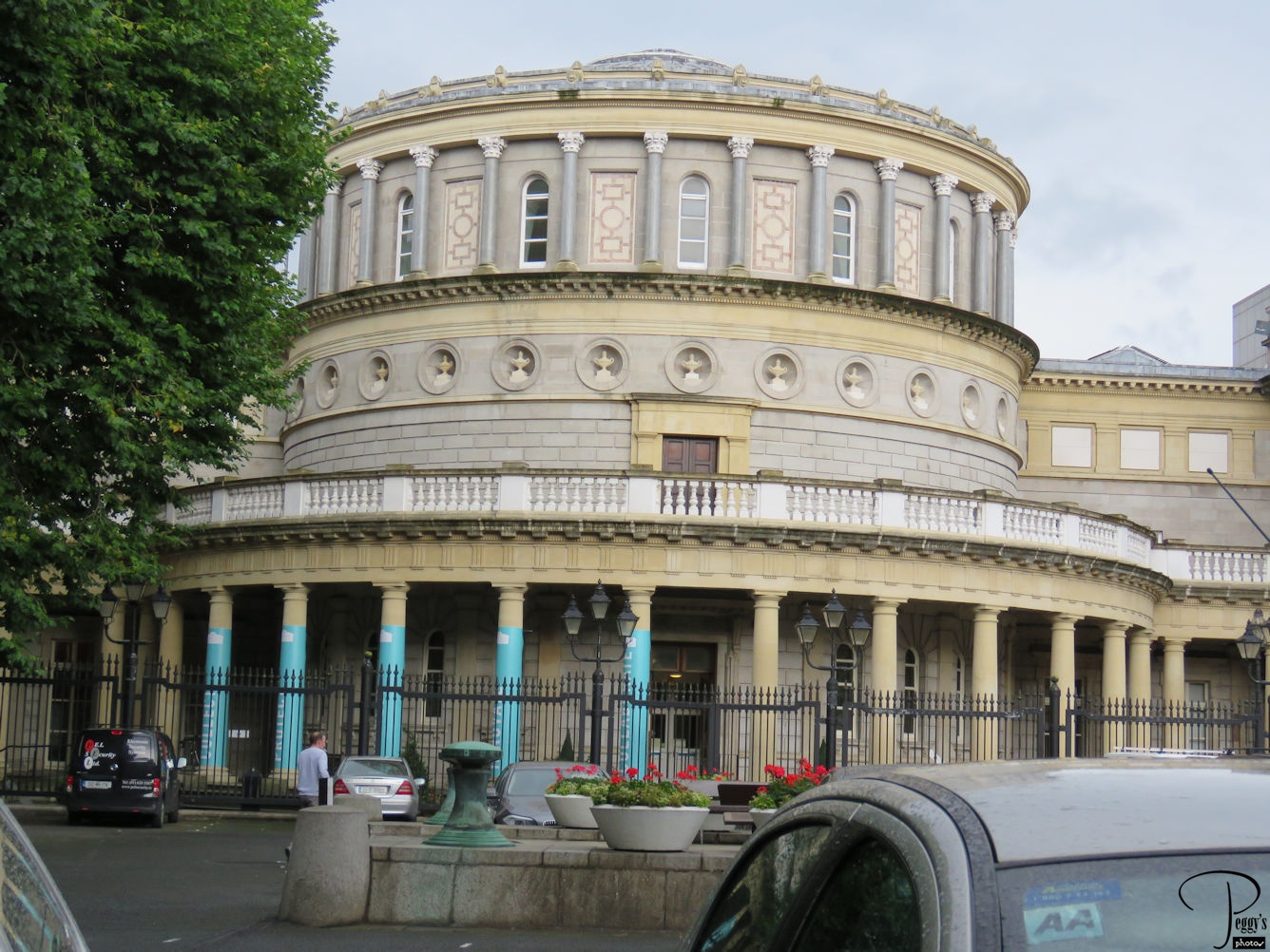
We had free time and we were near the National Museum of Ireland––Archaeology. Some of us followed Barbara, our tour director, to the museum.

National Museum of Ireland–Archaeology
National Museum of Ireland–Archaeology
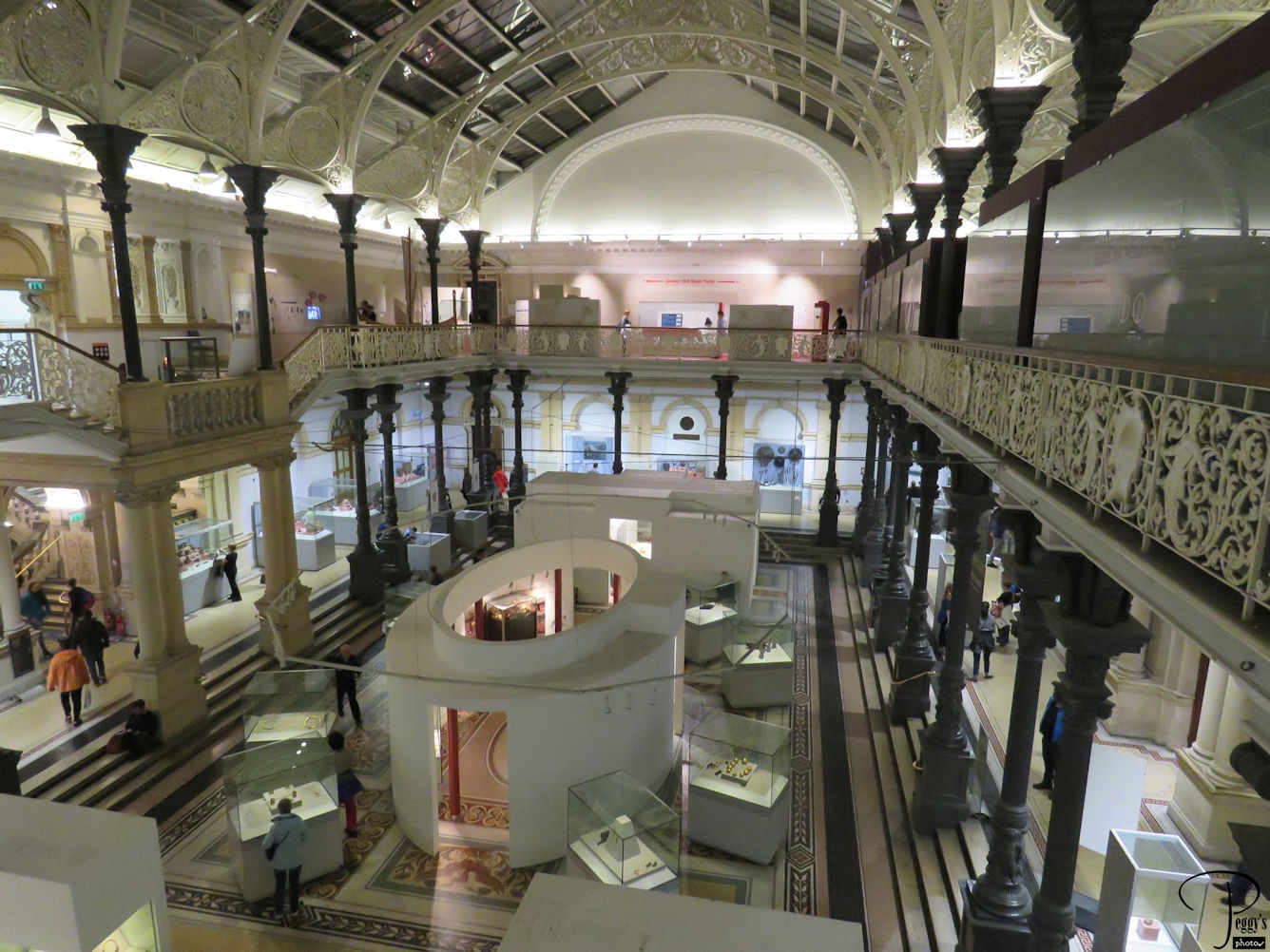
The museum has two levels of displays of items from the Stone Age to present times.

National Museum of Ireland–Archaeology
Bog Man
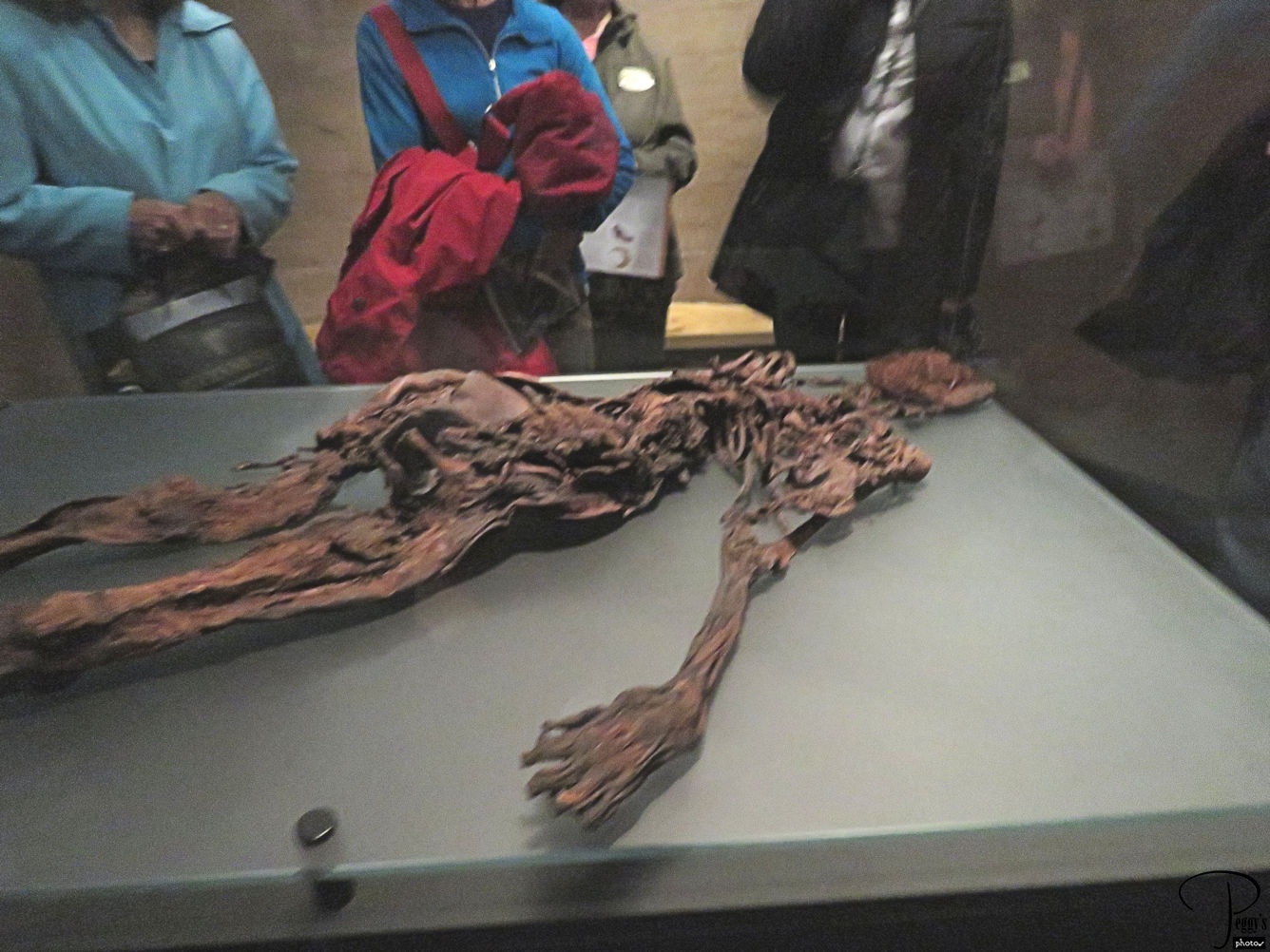
One of the reasons Barbara wanted us to follow her to the museum is that she wanted to make sure that we saw this bog man. Bog men are found mummified in the Irish peat bogs. They are well preserved.
I have included my photos of the National Museum of Ireland––Archeology in the slideshow that includes photos of the Book of Kells and the Guinness Storehouse. Go to
http://www.peggysphotos.com/book–of–kells–guinness–storehouse–archaelogy–museum/
(Slide Shows, Western Europe, Ireland, “Book of Kells, Guinness Storehouse, Archaeology Museum”).

Bog Man
Dublin Sights
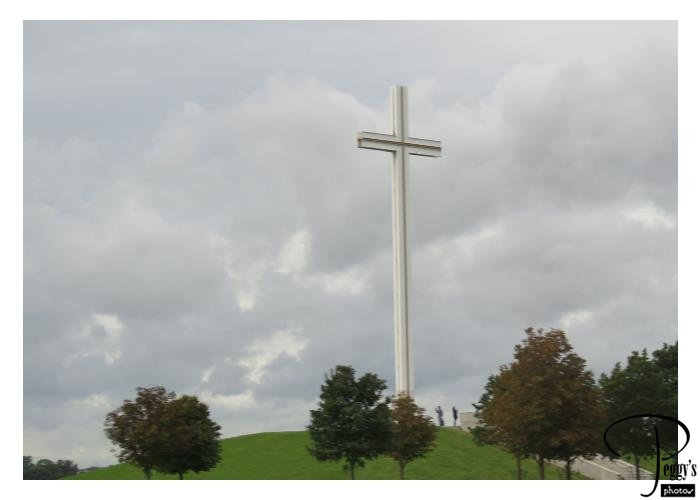
On Day 13, we took a tour of Dublin. We started out at Phoenix Park which has the President’s House, the home of the American ambassador to Ireland, many statues, and a zoo, among other things. This photo is of a large cross placed on the spot in Phoenix Park where Pope John Paul II gave a sermon to over 1.25 million people in 1979.

Dublin Sights
Dublin Sights
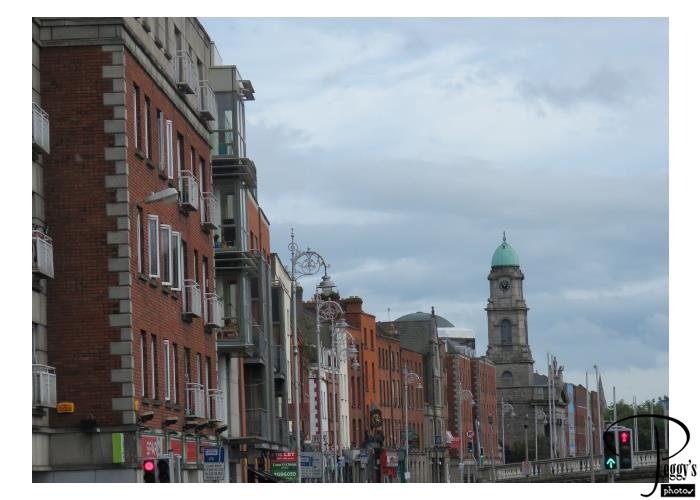
We drove around Dublin and saw many of its Georgian buildings.

Dublin Sights
Dublin Sights
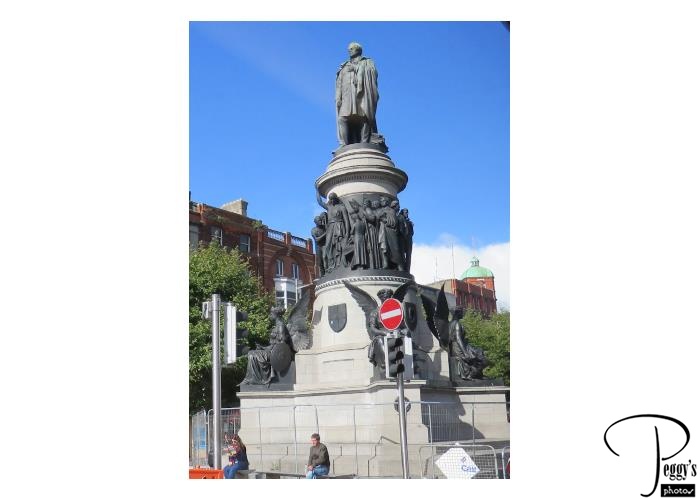
There are many statues in Dublin’s city center. Thiis statue is the Daniel O’Connell Memorial, 1880. O’Connell was an Irish political leader known as The Liberator. He campaigned for Catholic emanicipation.
I put the photos I took of Dublin this day and combined them with photos I took on subsequent days on a slideshow. Go to
http://www.peggysphotos.com/dublin–sights/
(Slide Shows, Western Europe, Ireland, “Dublin: Sights”).

Dublin Sights
Dublin Doors

While we were driving around Dublin, I also took photos of the famous Dublin doors. In earlier times, exterior of the Georgian townhouses had to conform to strict architectural guidelines. To set a townhouse apart, their owners painted their doors all different colors and added fanlights, which are windows shaped like fans, and other kinds of lights over doorways. The Dublin doors have become famous.
I have put my photos of the Dublin Doors on a slideshow. Go to
http://www.peggysphotos.com/dublin–doors/
(Slide Shows, Western Europe, Ireland, “Dublin Doors”).

Dublin Doors
Farewell Dinner
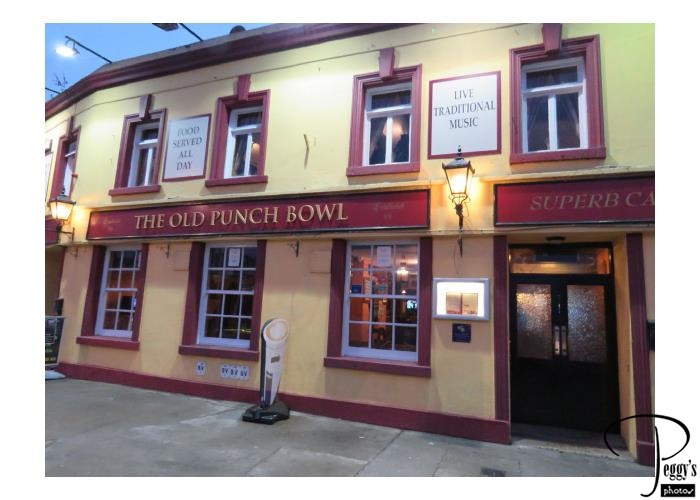
Today was the end of the main part of our tour of Ireland. We had a farewell dinner at this restaurant.

Farewell Dinner
Post Tour

Day 13: Ten of us stayed in Dublin to take a three–day post tour. We had said goodby to Barbara, our tour director for Northern Ireland and the regular part of our Ireland tour. We had a new guide for our post tour: Mary, who we enjoyed very much.

Post Tour
St. Patrick’s Cathedral
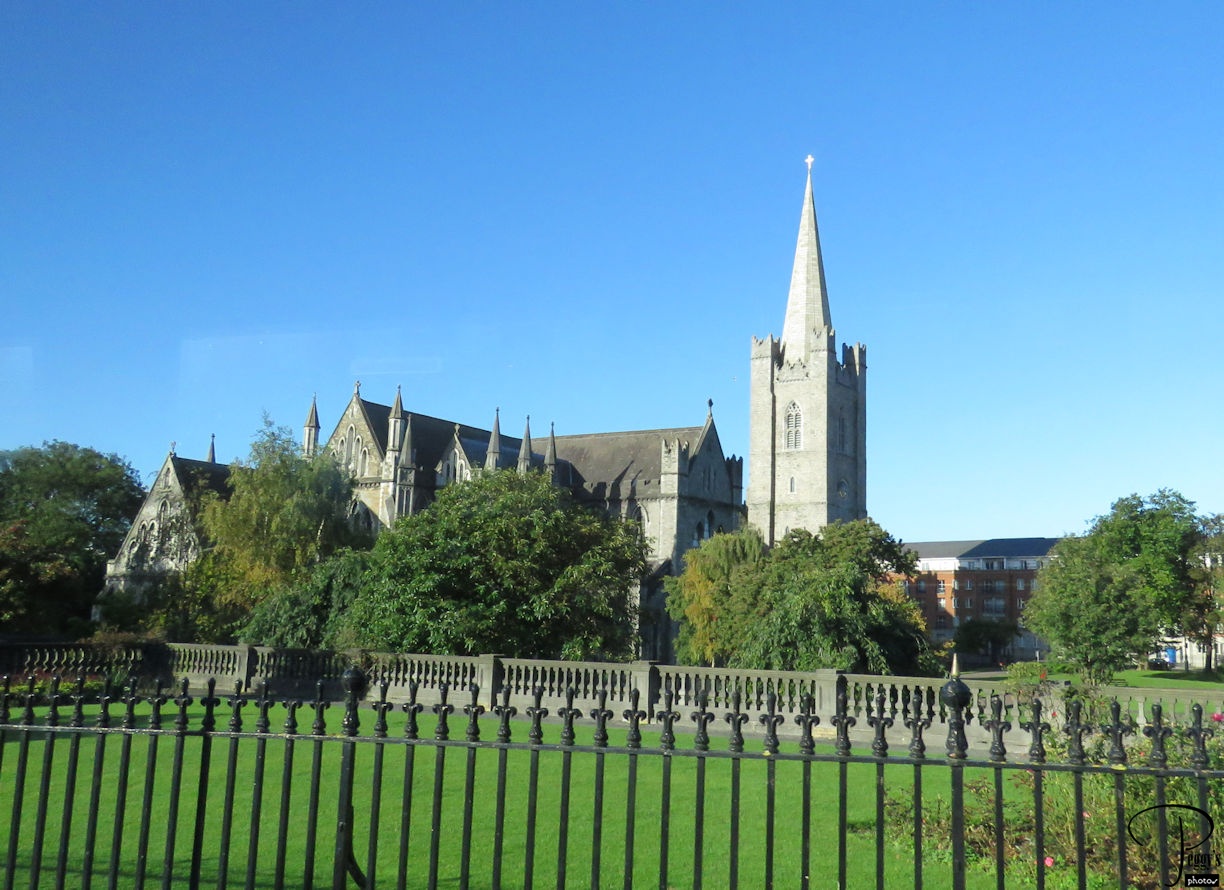
Our first stop of the day was at St. Patrick’s Cathedral, founded in 1191. It is the National Cathedral of the Church of Ireland and Ireland’s largest church and also its tallest. Its spire, called Minot’s Tower, is 141 feet (43 m) tall.

St. Patrick’s Cathedral
St. Patrick’s Cathedral
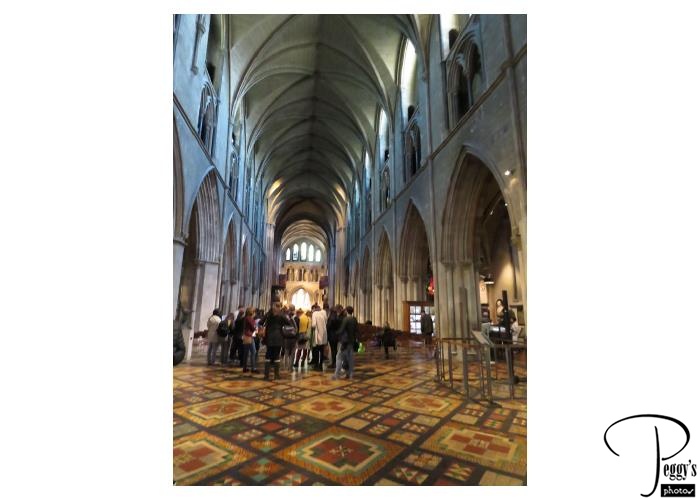
Inside the beautiful cathedral.

St. Patrick’s Cathedral
Jonathan Swift
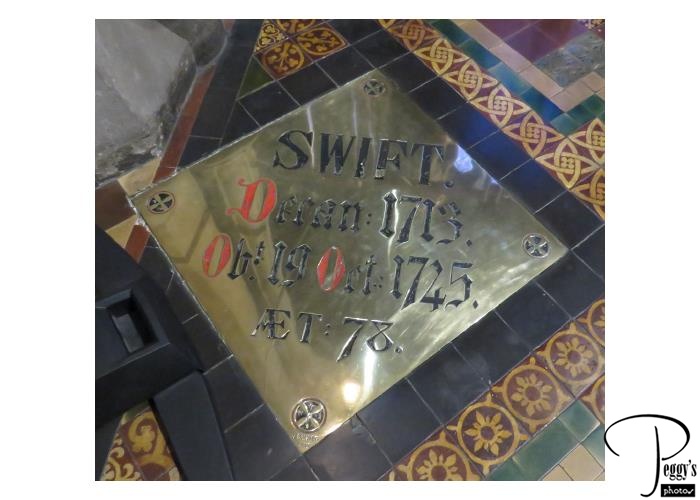
Jonathan Swift of “Gulliver’s Travels” was the Dean of St. Patrick’s Cathedral from 1713 to 1745. He is buried under the cathedral’s floor.
I have put my photos of St. Patrick’s Cathedral on a slide show along with photos of the Dublin Castle and the Glasnevin Cemetery. Go to
http://www.peggysphotos.com/dublin–cathedral–castle–cemetery/
(Slide Shows, Western Europe, Ireland, “Dublin: Cathedral, Castle, Cemetery”).

Jonathan Swift
Dublin Castle
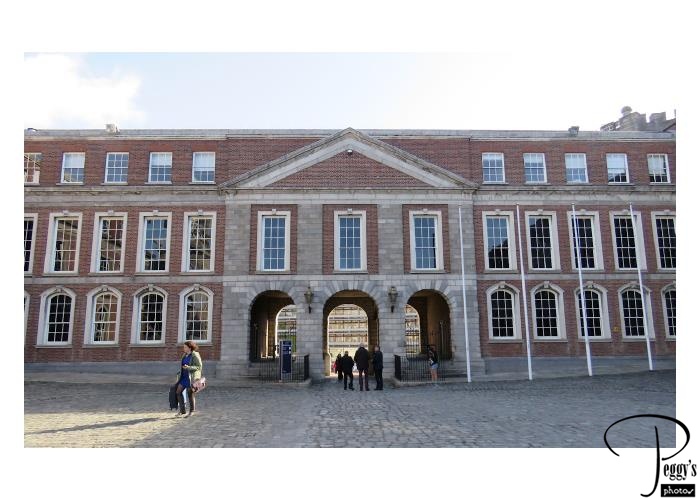
After visiting St. Patrick’s Cathedral, our next stop was at the Dublin Castle. Dublin Castle was built in the 13th century. It was originally built as a defensive fortification by the Normans and has served as a royal residence, parliament and law courts, and military garrison. Today, many official state functions are held in the castle.

Dublin Castle
National Botanic Gardens
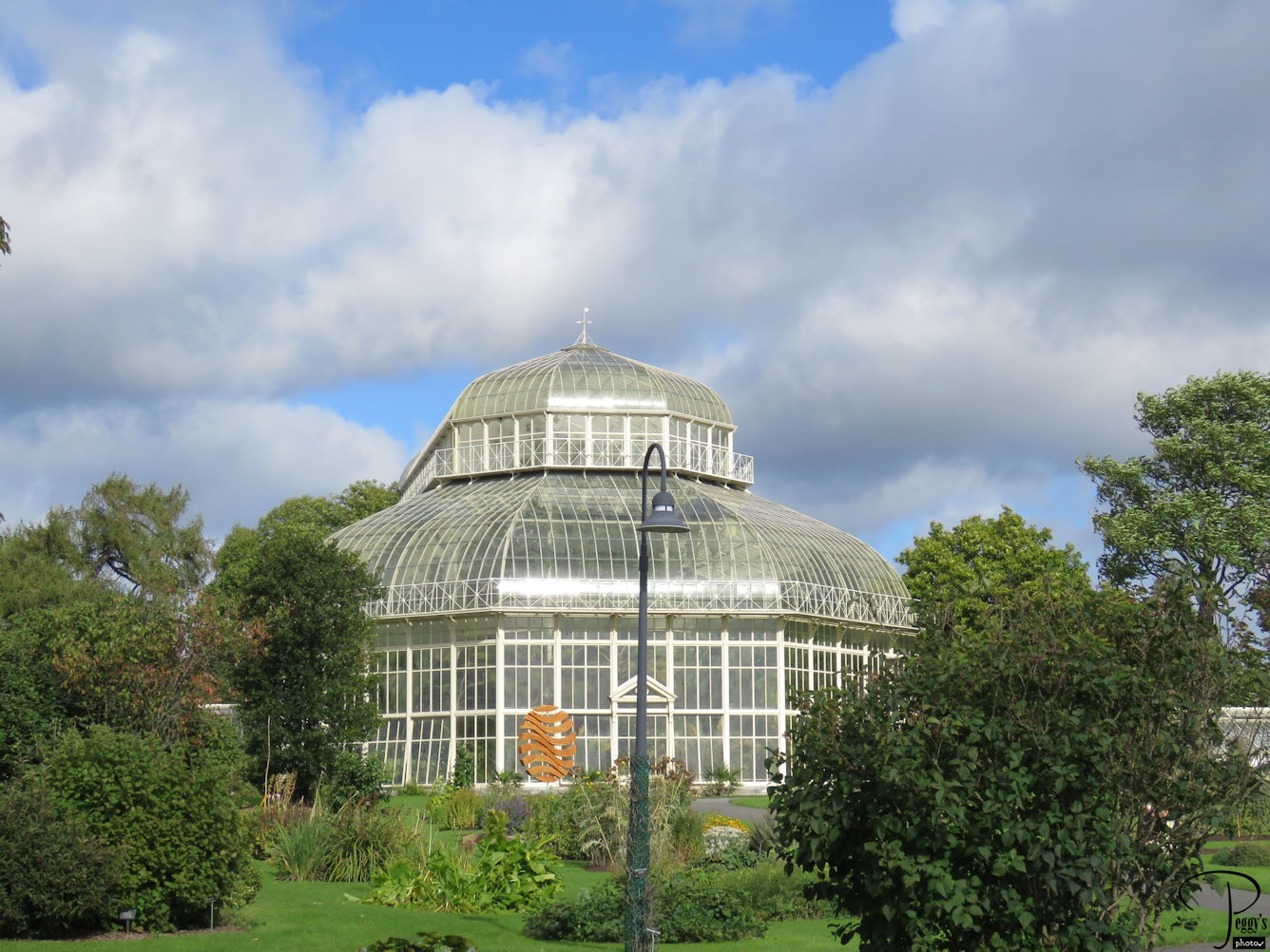
Our next stop was at the National Botanic Gardens which is right next to Glasnevin Cemetery. There was time only to visit one.

National Botanic Gardens
Glasnevin Cemetery
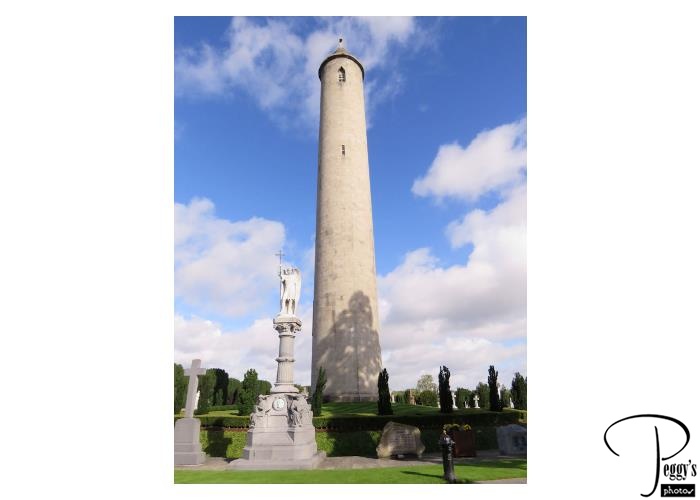

Glasnevin Cemetery
Glasnevin Cemetery
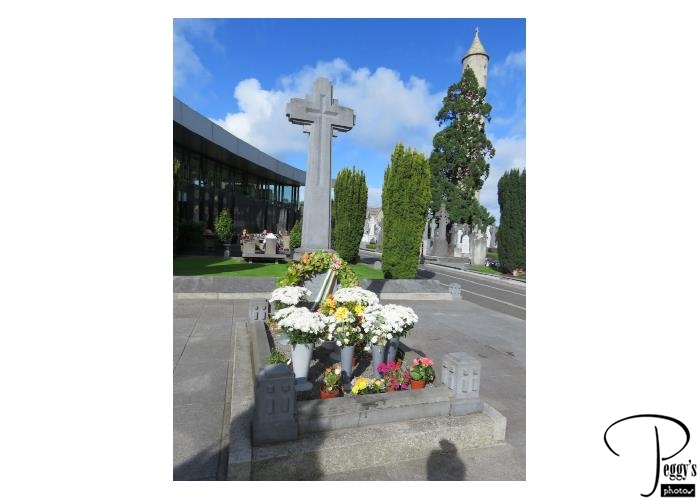
The gravesite of Michael Collins, 1890–1922, a leading figure in the struggle for Irish independence, is also at Glasnevin Cemetery. Collins was shot and killed in an ambush in 1922 during the Irish Civil War.
I have put my photos of the Glasnevin Cemetery along with photos of St. Patrick’s Cathedral and the Dublin Castle on a slideshow. Go to
http://www.peggysphotos.com/dublin–cathedral–castle–cemetery/
(Slide Shows, Western Europe, Ireland, “Dublin: Cathedral, Castle, Cemetery”).

Glasnevin Cemetery
Town of Bray
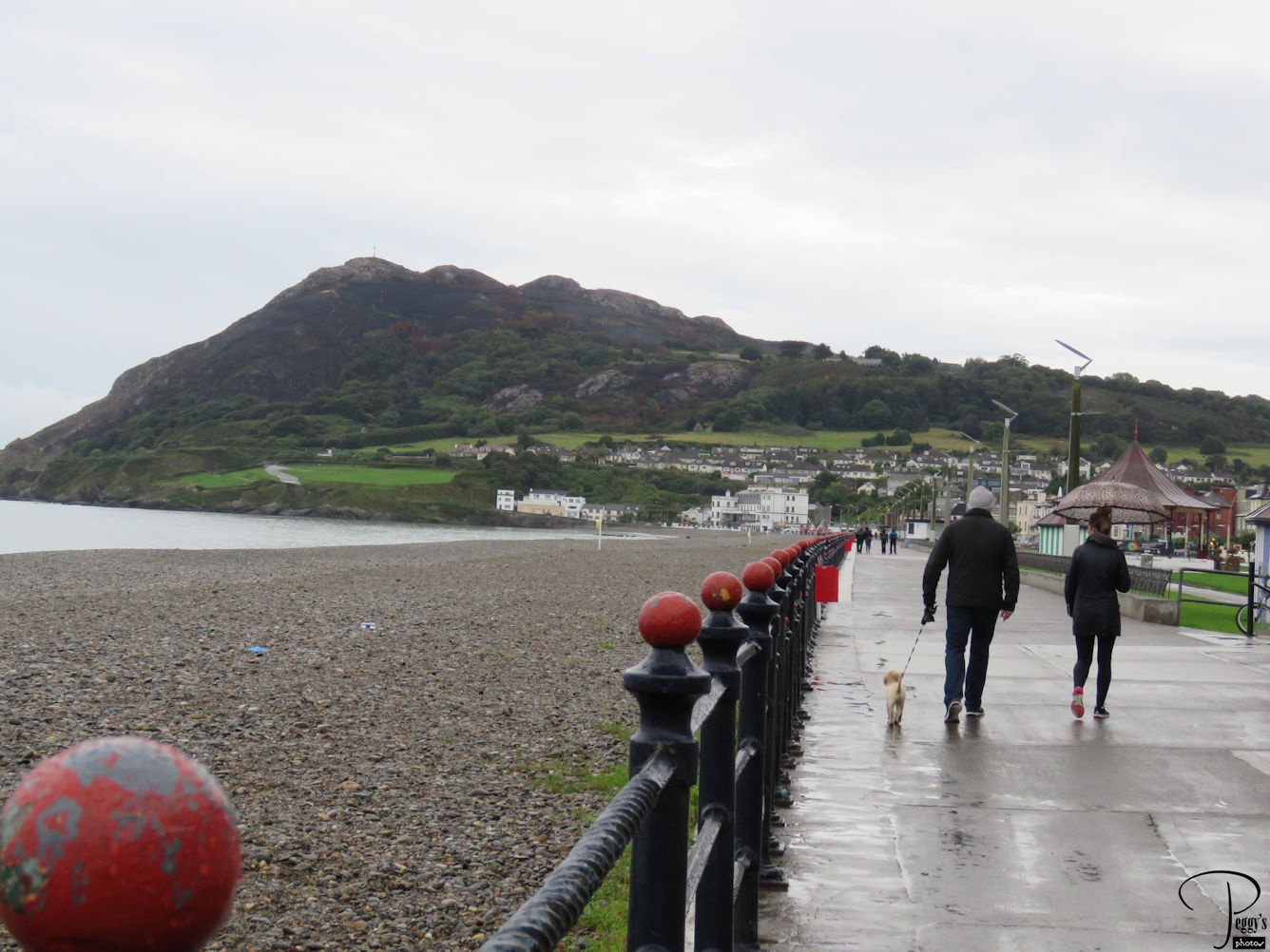
On Day 14, we had an optional tour to Glendalough Valley, the Monastic City, and the Powerscourt House. We made a rest stop in the small coastal town of Bray.

Town of Bray
Tim Kaine Lookalike
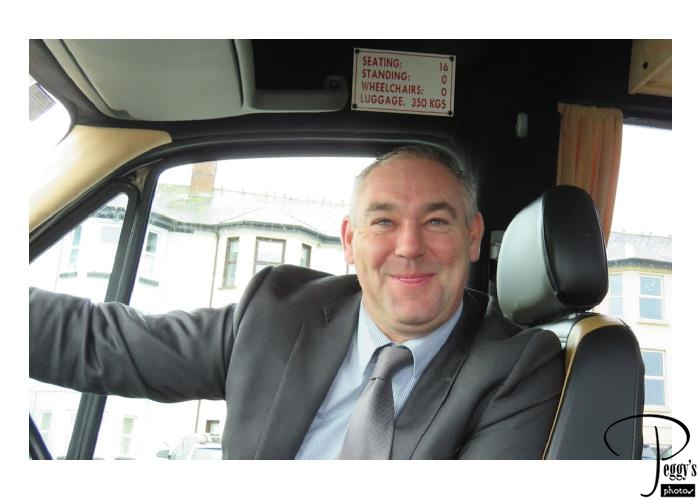
We had a new bus driver today, a Tim Kaine lookalike. They are both Irish.

Tim Kaine Lookalike
Glendalough Valley
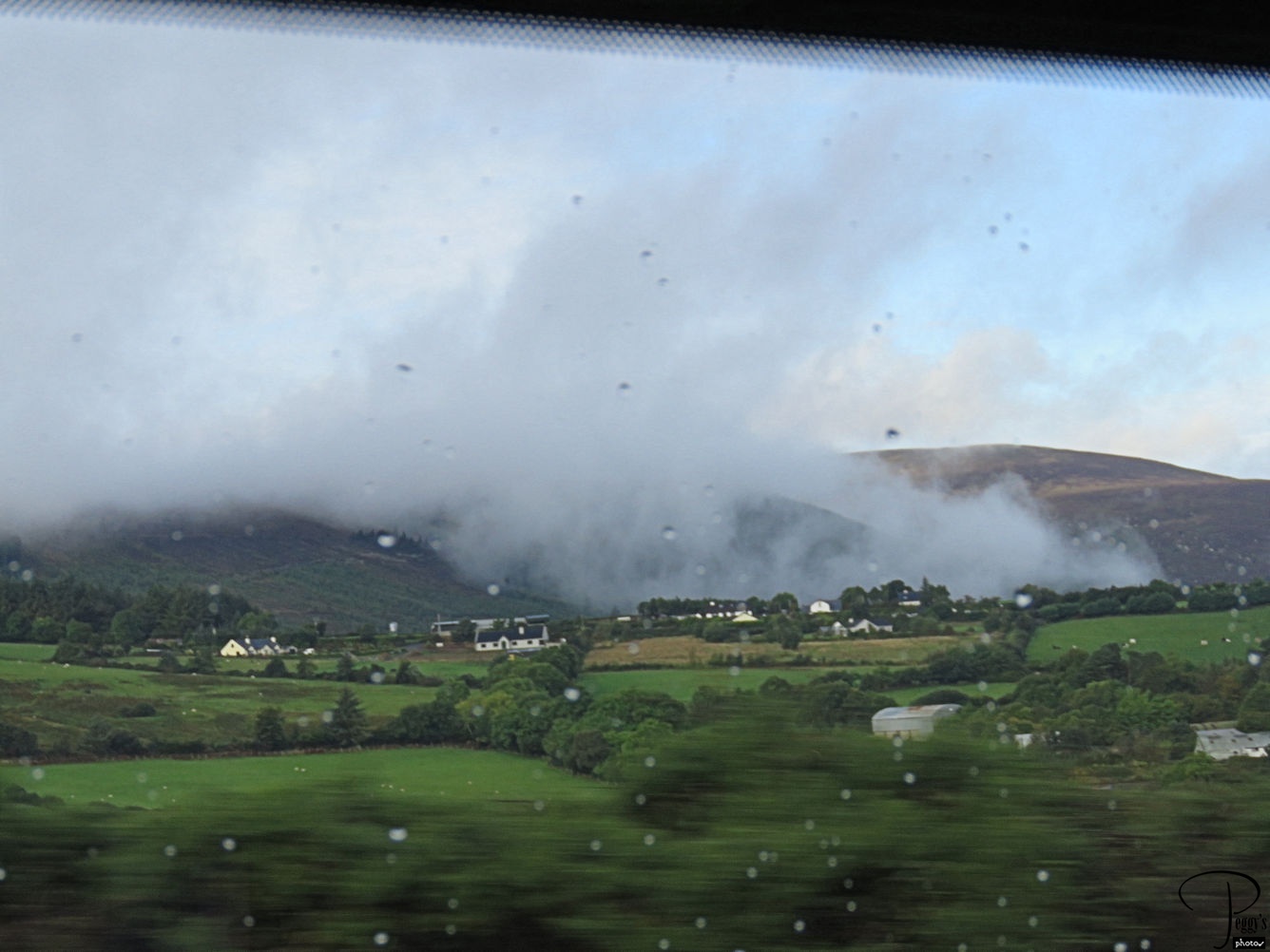
We drove through the Glendalough Valley, a glacial valley, in the Wicklow Mountains National Park. The scenery was quite beautiful even in the rain. Those are raindrops on the photo.

Glendalough Valley
Monastic City


Monastic City
Monastic City
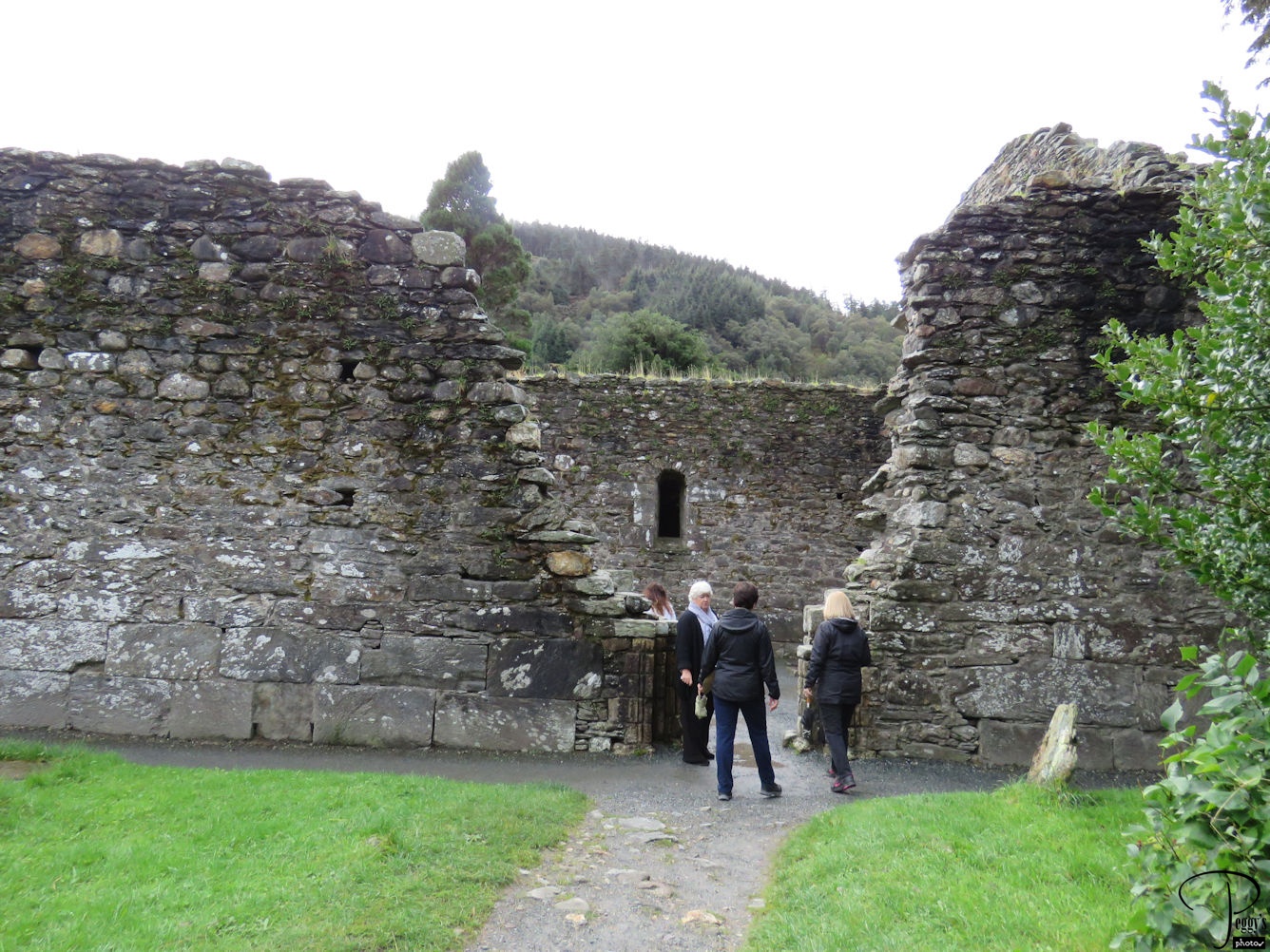
The ruins of the Cathedral, built from the 10th to the early 13th centuries.

Monastic City
Monastic City
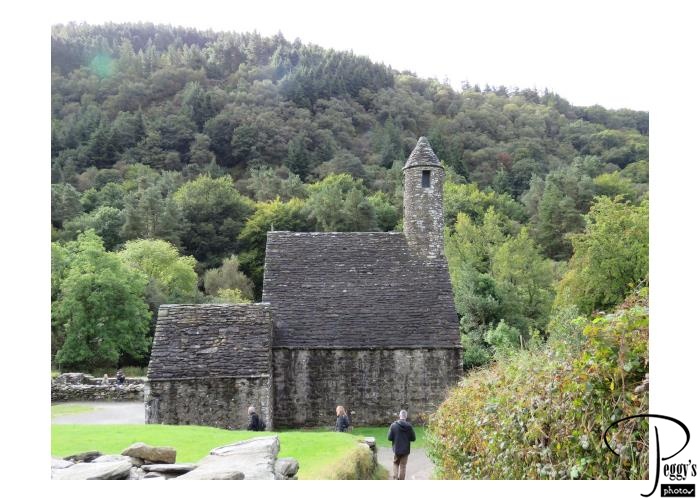

Monastic City
Powerscourt House
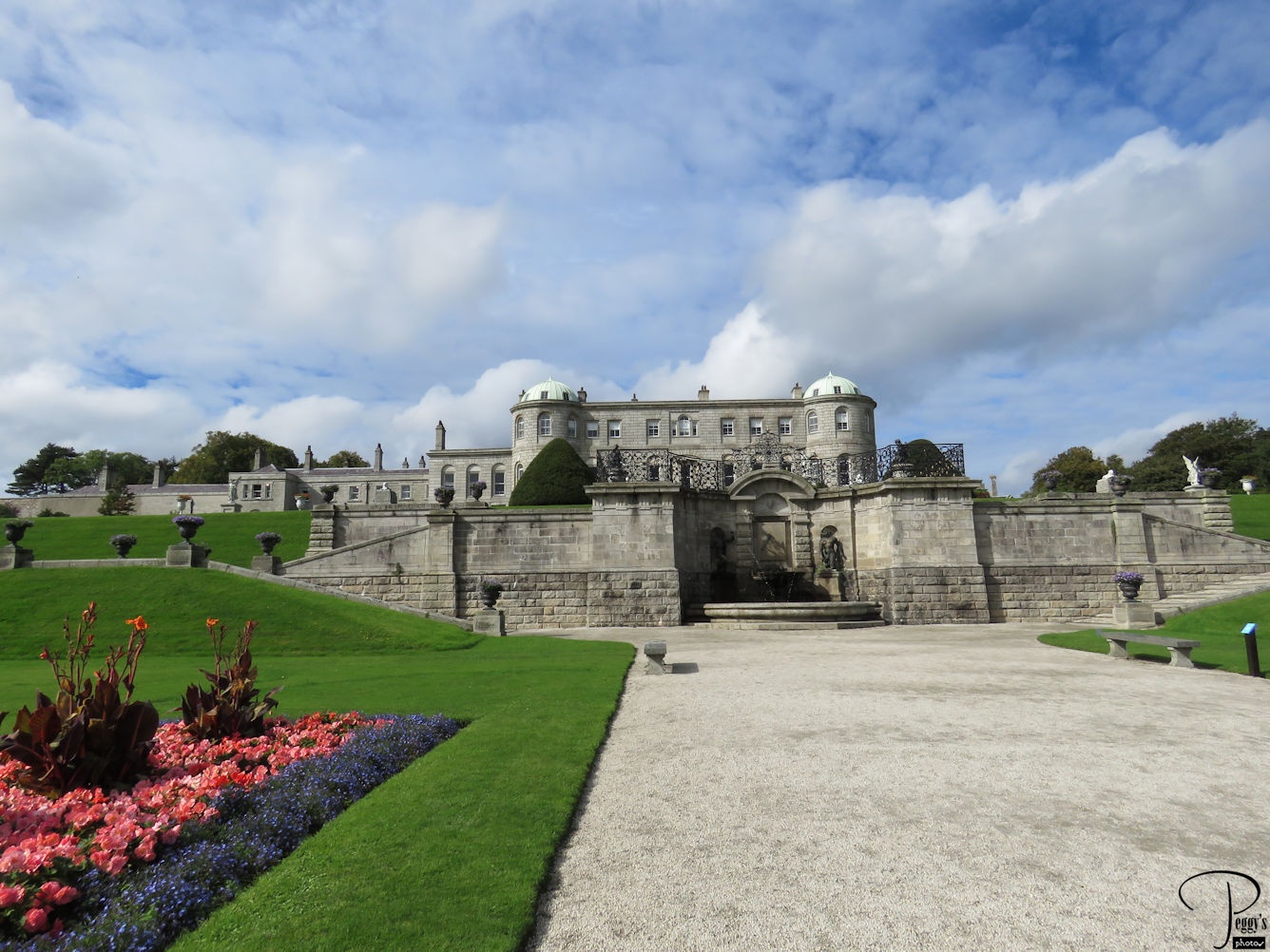
Our next stop was at the Powerscourt House, a mansion that was originally built in the 13th century as a castle. It was altered in the 18th century by one of the Powerscourt family.

Powerscourt House
Powerscourt House
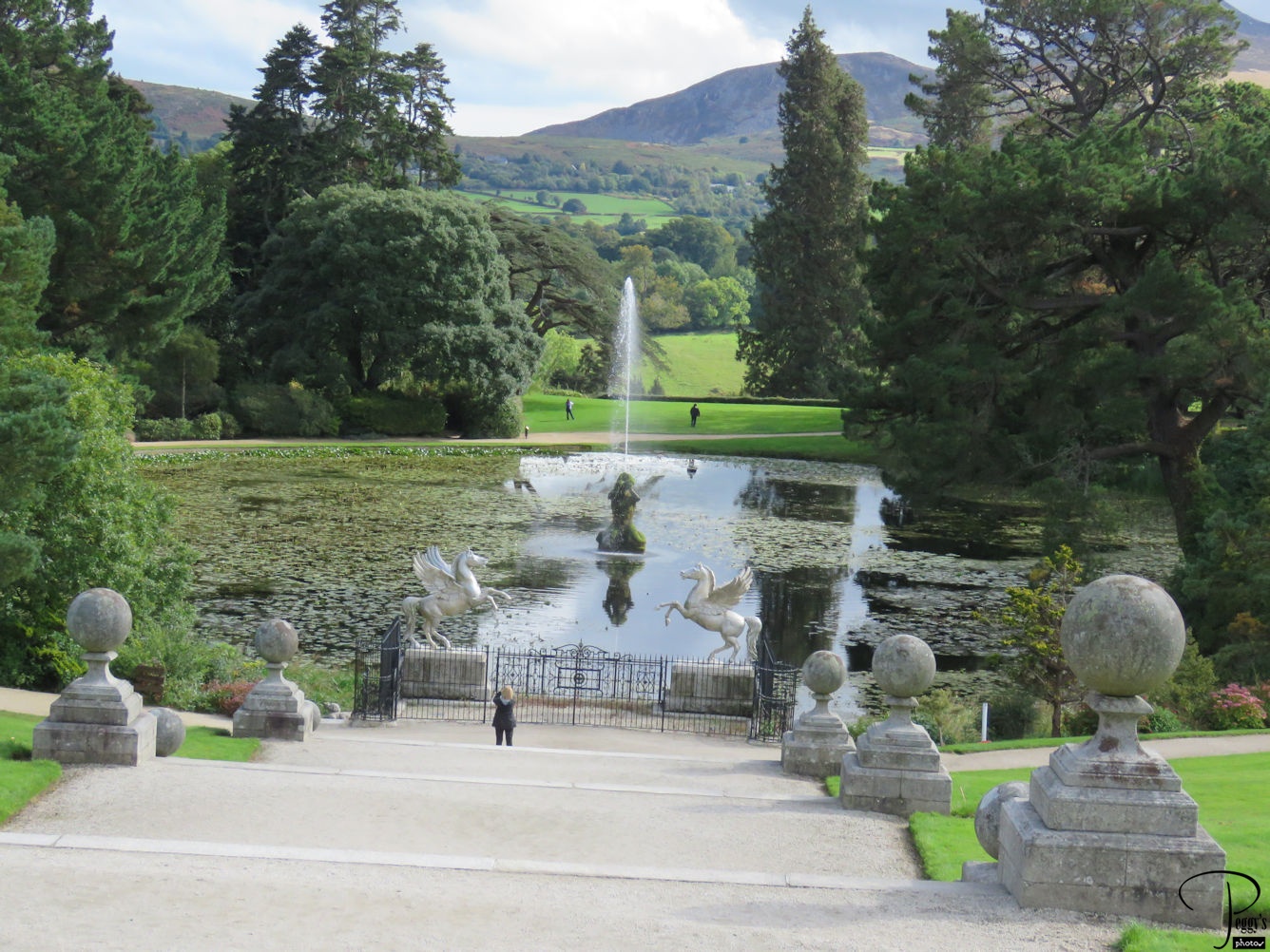
Here there are 47 acres of grounds with many made up of beautiful gardens and fountains.
I have put my photos of Bray, the Glendalough Valley, the Monastic City, and the Powerscourt House on a slideshow. Go to
http://www.peggysphotos.com/glendalough–valley–powerscourt–house/
(Slide Shows, Western Europe, Ireland, “Glendalough Valley, Powerscourt House”).

Powerscourt House
Kilmainham Gaol

Day 15. Today was a free day. Five of us booked a tour of the Kilmainham Gaol. We also booked a people carrier, which is a taxi that will seat more than four people, to take us.
Kilmainham Gaol opened in 1796 as a Dublin county jail and closed in 1924. Ordinary men, women, and children as young as 7 years old were held in Kilmainham, convicted of crimes ranging from stealing food to murder. Many prisoners were put in a single cell under deplorable conditions. Photo: Inside the prison.

Kilmainham Gaol
Kilmainham Gaol
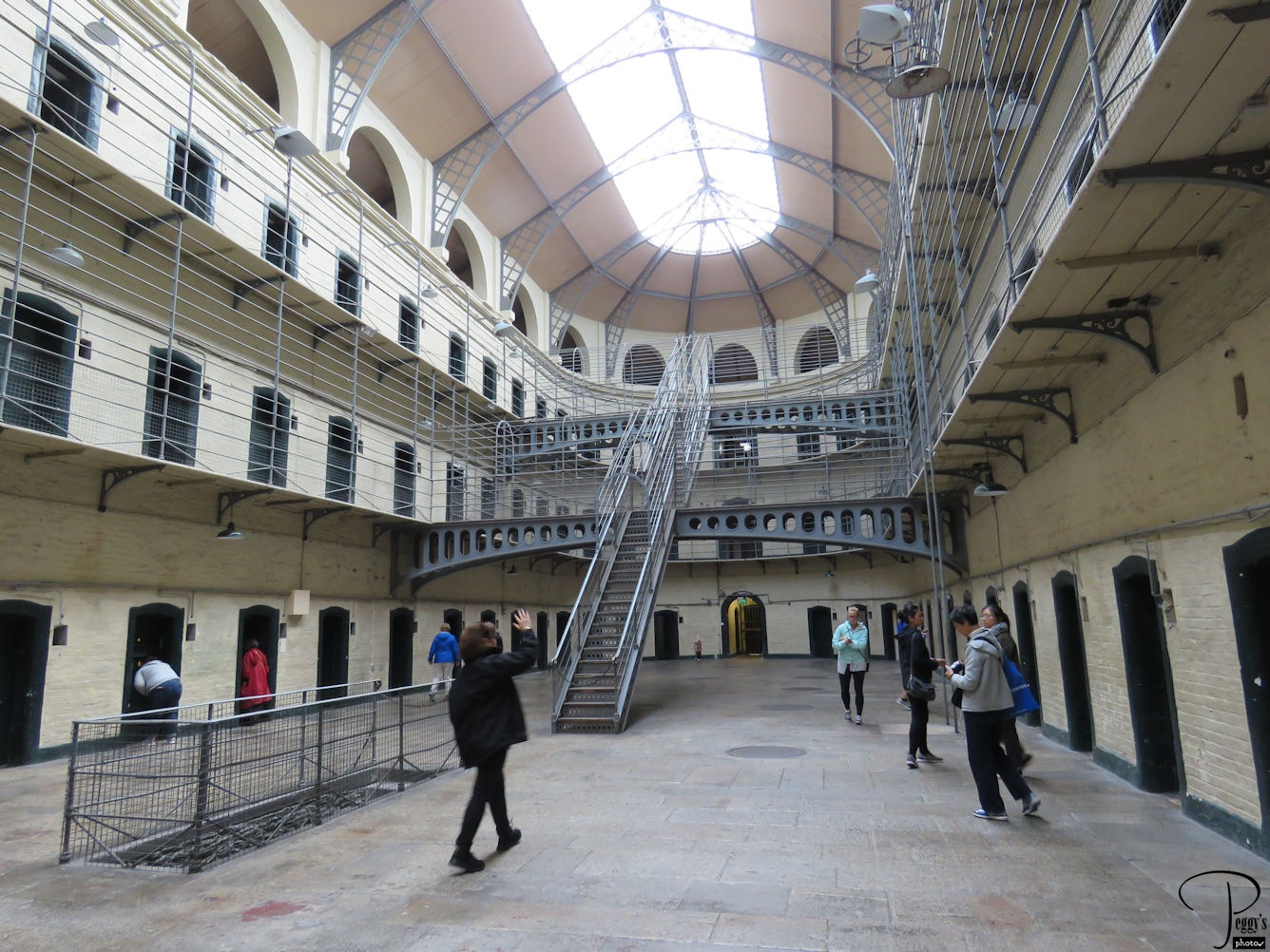
The main part of the jail, which you probably have seen in movies.

Kilmainham Gaol
Kilmainham Gaol
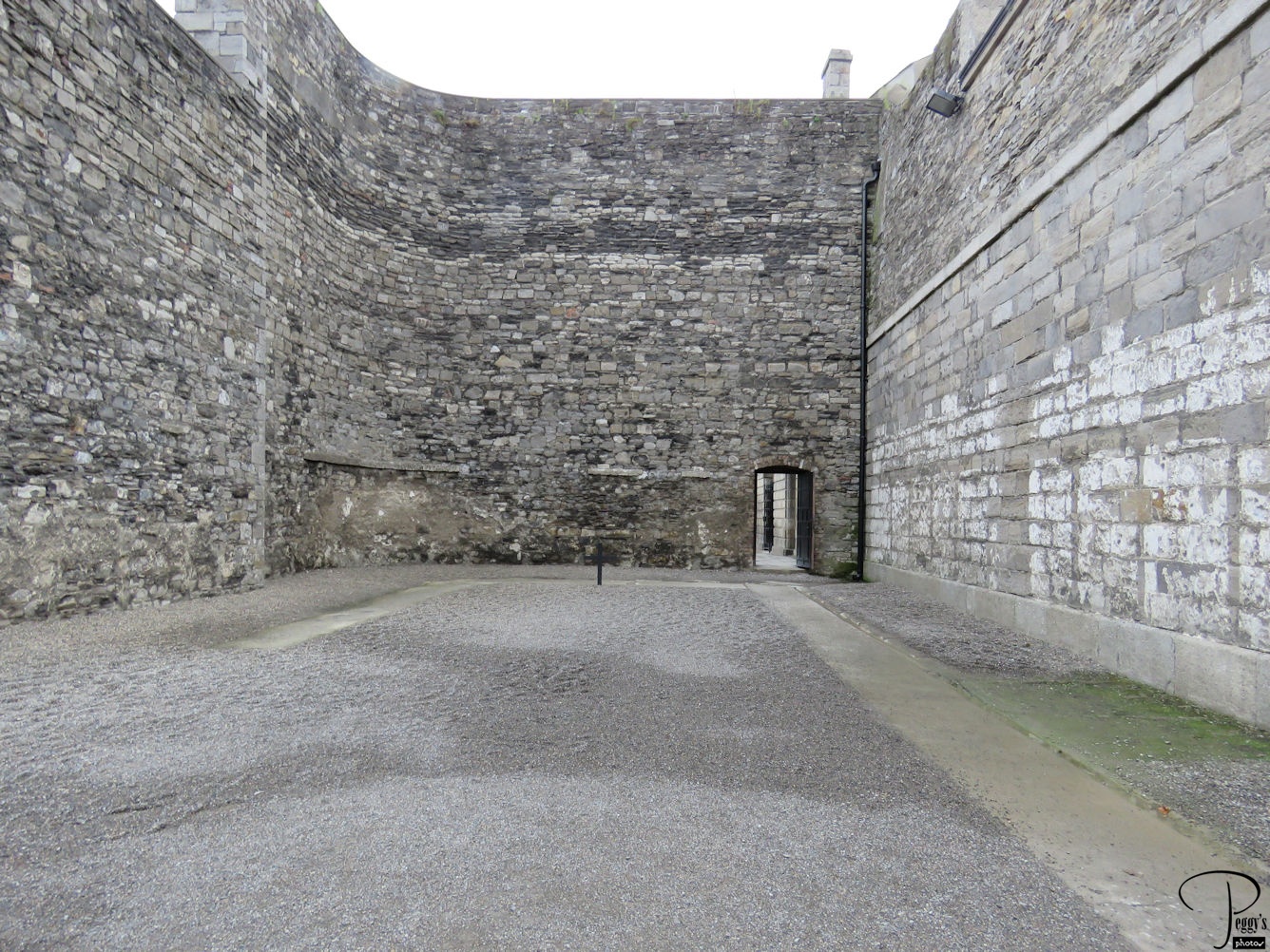
Many prisoners were executed at Kilmainham, including 14 men for their roles in the 1916 Easter Uprising. Photo: where the executions took place.
I have put my photos of the Kilmainham Gaol on a slideshow along with photos of Howth. Go to
http://www.peggysphotos.com/kilmainham–gaol–howth/
(Slide Shows, Western Europe, Ireland, “Kilmainham Gaol & Howth”).

Kilmainham Gaol
Dublin to Howth
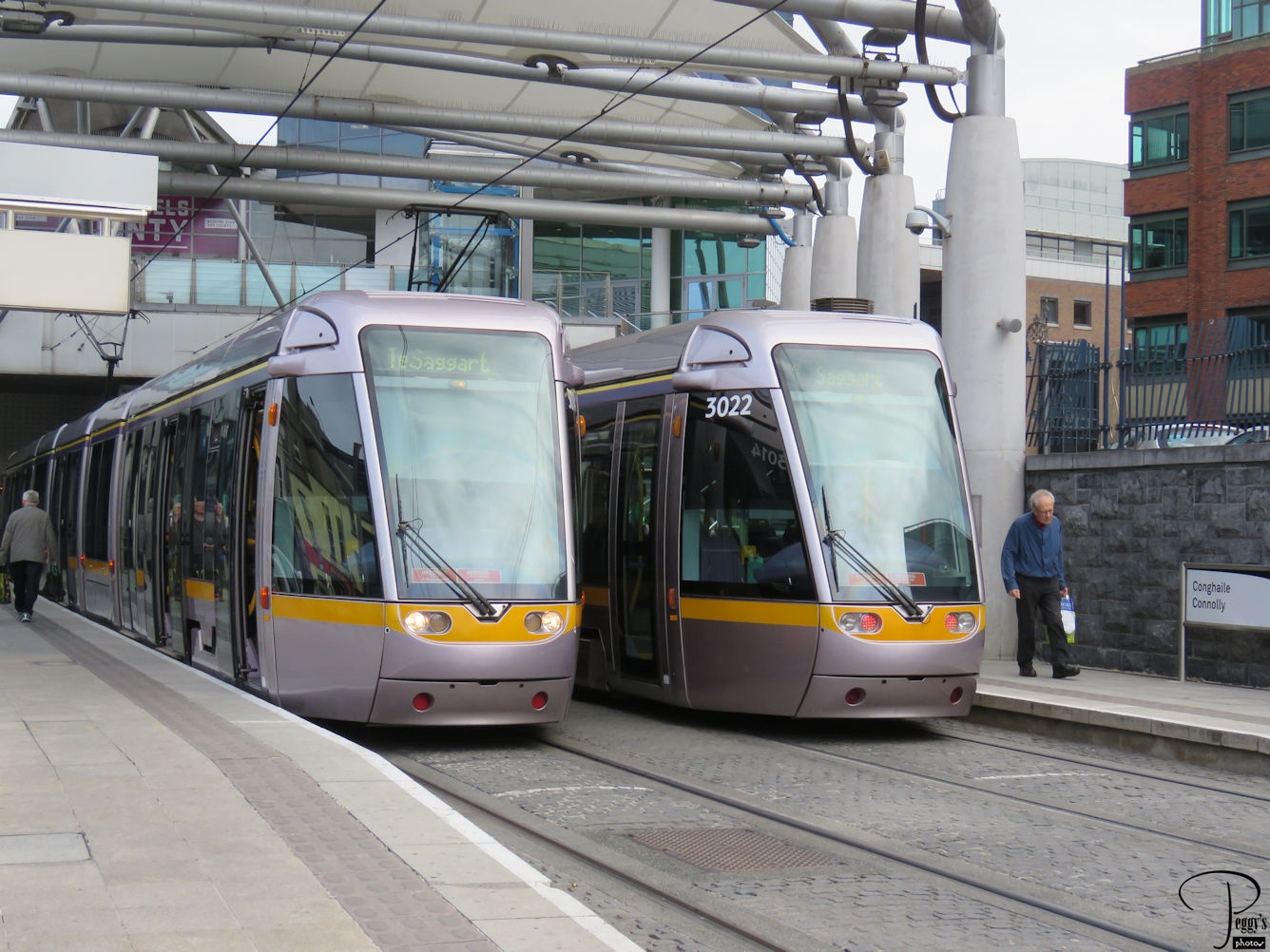
After visiting the Kilmainham Gaol, we took the DART from Dublin to the seaside town of Howth, a suburb of Dublin. We asked at the jail’s gift store to call a people carrier for us. We waited and waited, but no people carrier came. So we broke up into two groups and took regular taxis to the station. Ireland appears to be very strict as to the maximum number of people allowed in a regular taxi: four. But our two groups were let off at different parts of the station. We finally found each other and took the train ride to Howth together.

Dublin to Howth
Howth
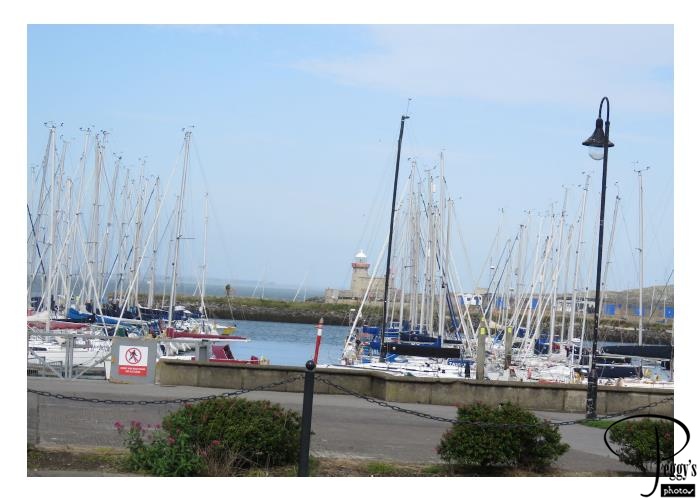
It was a suggestion of Mary’s, our new tour director, for us to take a trip to Howth. Part of our post–tour group were already in Howth when we got there. There was a very strong and cold wind blowing when we were here.

Howth
Howth
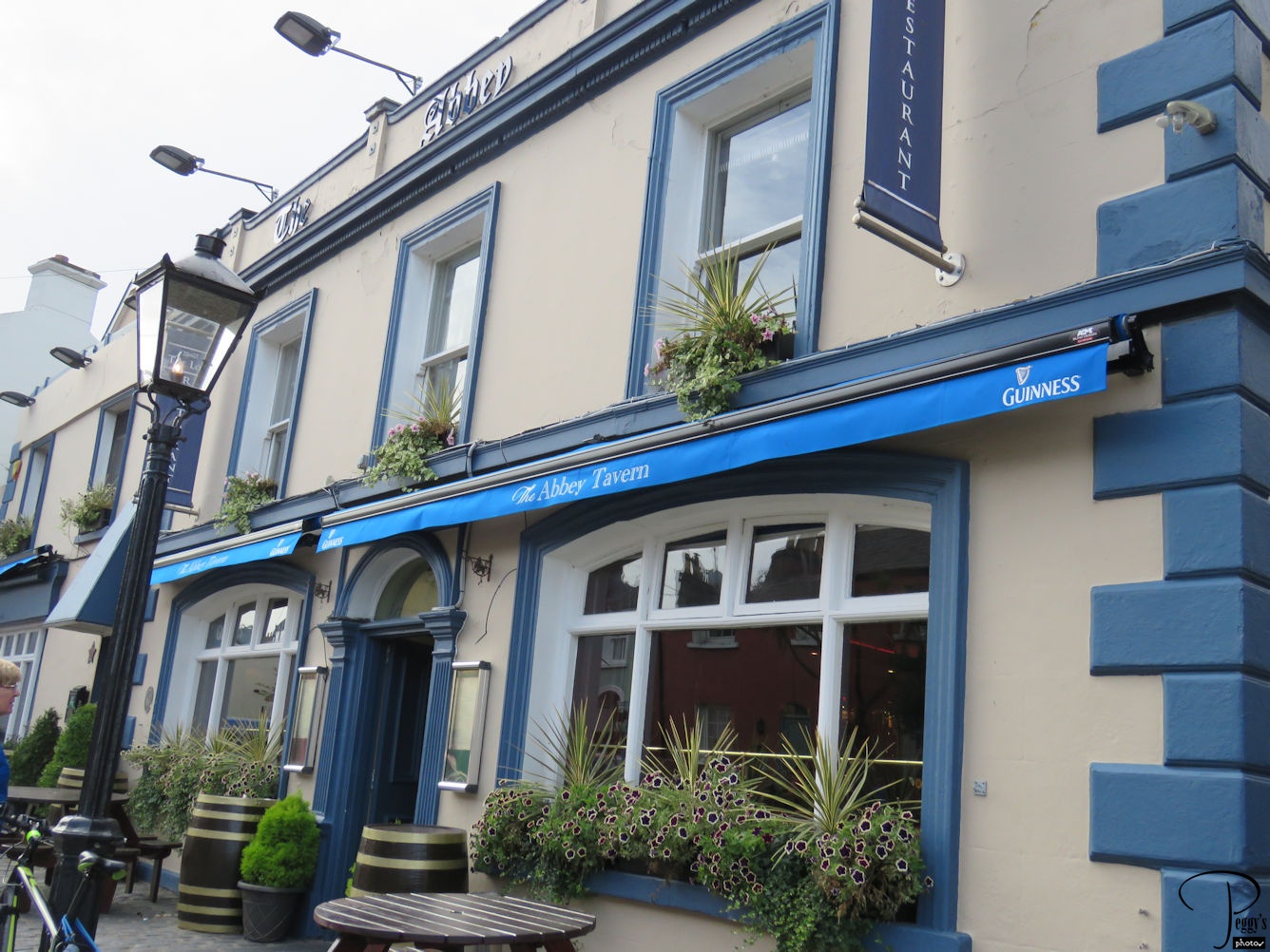
We braved the wind and walked along the street facing the harbor and then up a hill to have a very good lunch at the Abbey Tavern which had been recommended by a friend of one of my tour mates. After eating, we took the train back to Dublin.
I have put my photos of Howth on a slideshow along with Kilmainham Gaol. Go to
http://www.peggysphotos.com/kilmainham–gaol–howth/
(Slide Shows, Western Europe, Ireland, “Kilmainham Gaol & Howth”).
We had a very nice farewell dinner tonight in Dublin.
Day 16 was the end of our post tour and time for me to fly home from Dublin to Los Angeles via Newark. Both U.S. immigration and customs were at the Dublin Airport, including Global Entry which I have, so arriving in the U.S. was very easy. We were also able to obtain our tax refunds from using our Horizon cards at the Dublin Airport.
All in all, a very nice trip to Ireland, which I liked very much except for its weather. Ireland is easily the most friendly country that I have traveled to and this made my visit even better.
